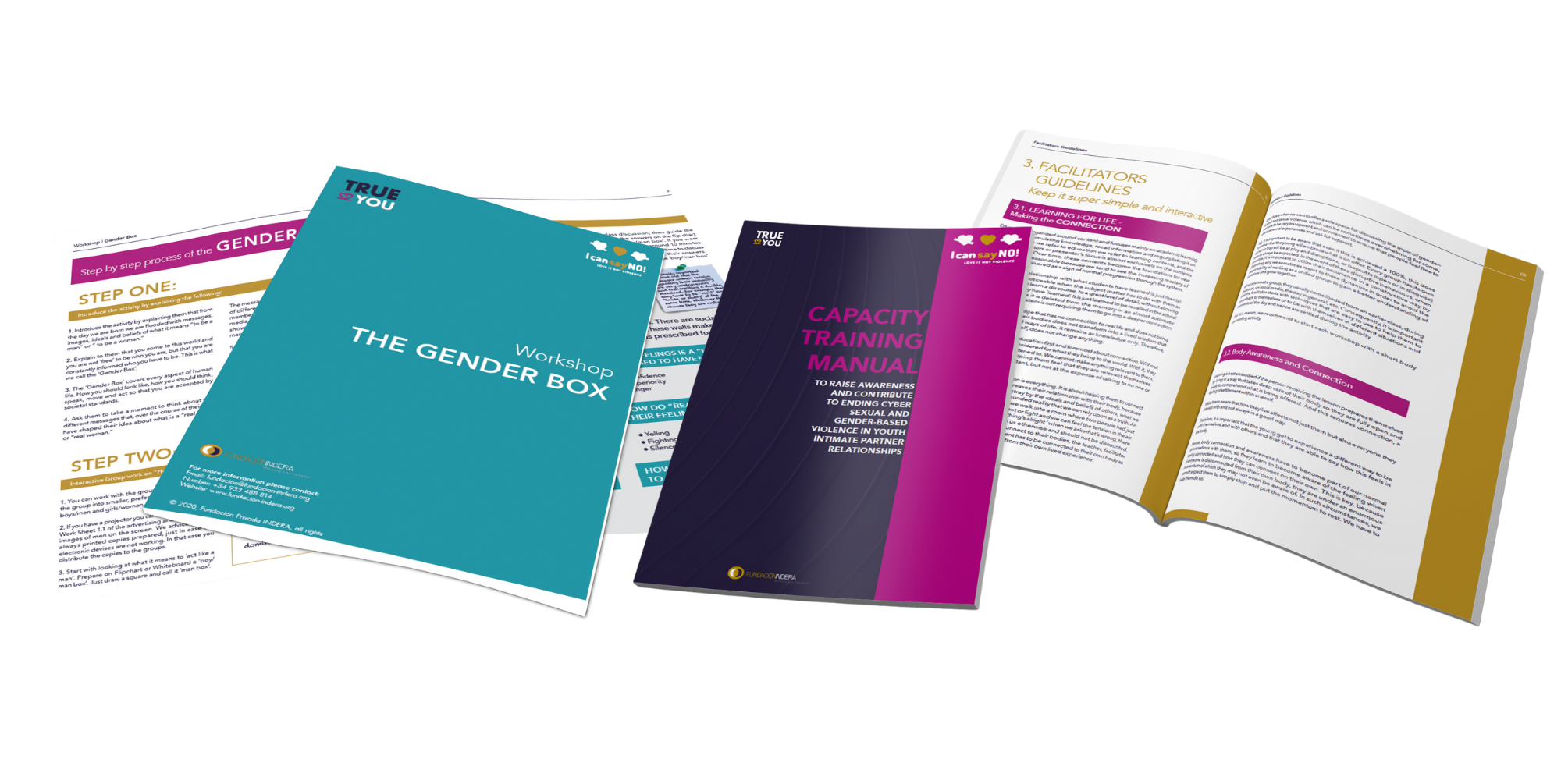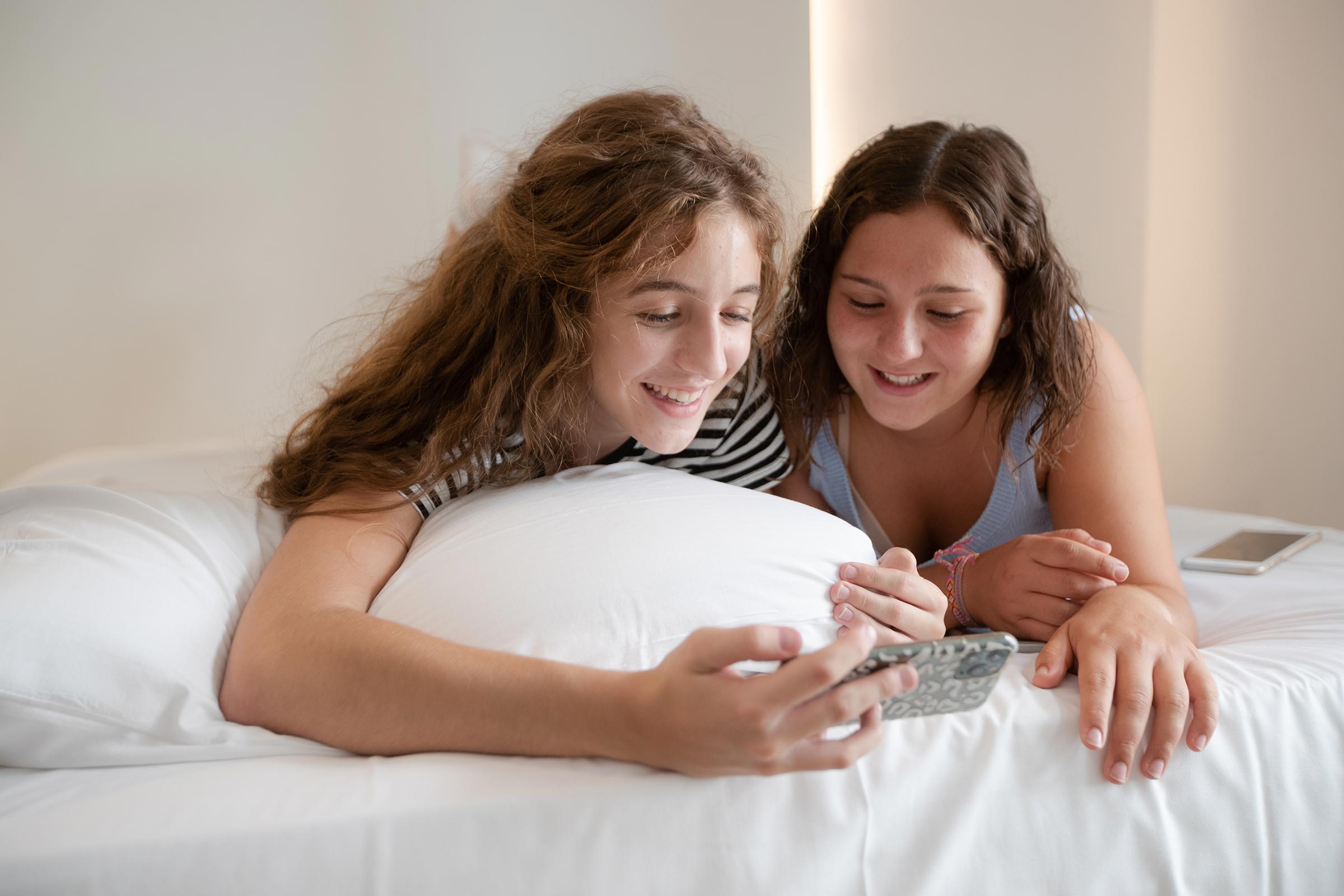The resources offered here are guidelines for teachers, facilitators, youth workers, peer educators, etc. to offer a space for young people to revise, discuss, feel and re-connect to what is going on in their lives.
Use the materials to engage the young and support them to understand how far we live removed from ourselves and to introduce the importance of connecting to the feelings that our bodies are communicating to us, but are many times ignored or discounted.
Let each workshop develop according to what is needed. It is not about teaching or telling the young but coming to a shared understanding about why we many times make choices in our lives that are actually abusive to ourselves and others when we all deep down would prefer a more loving approach to life.
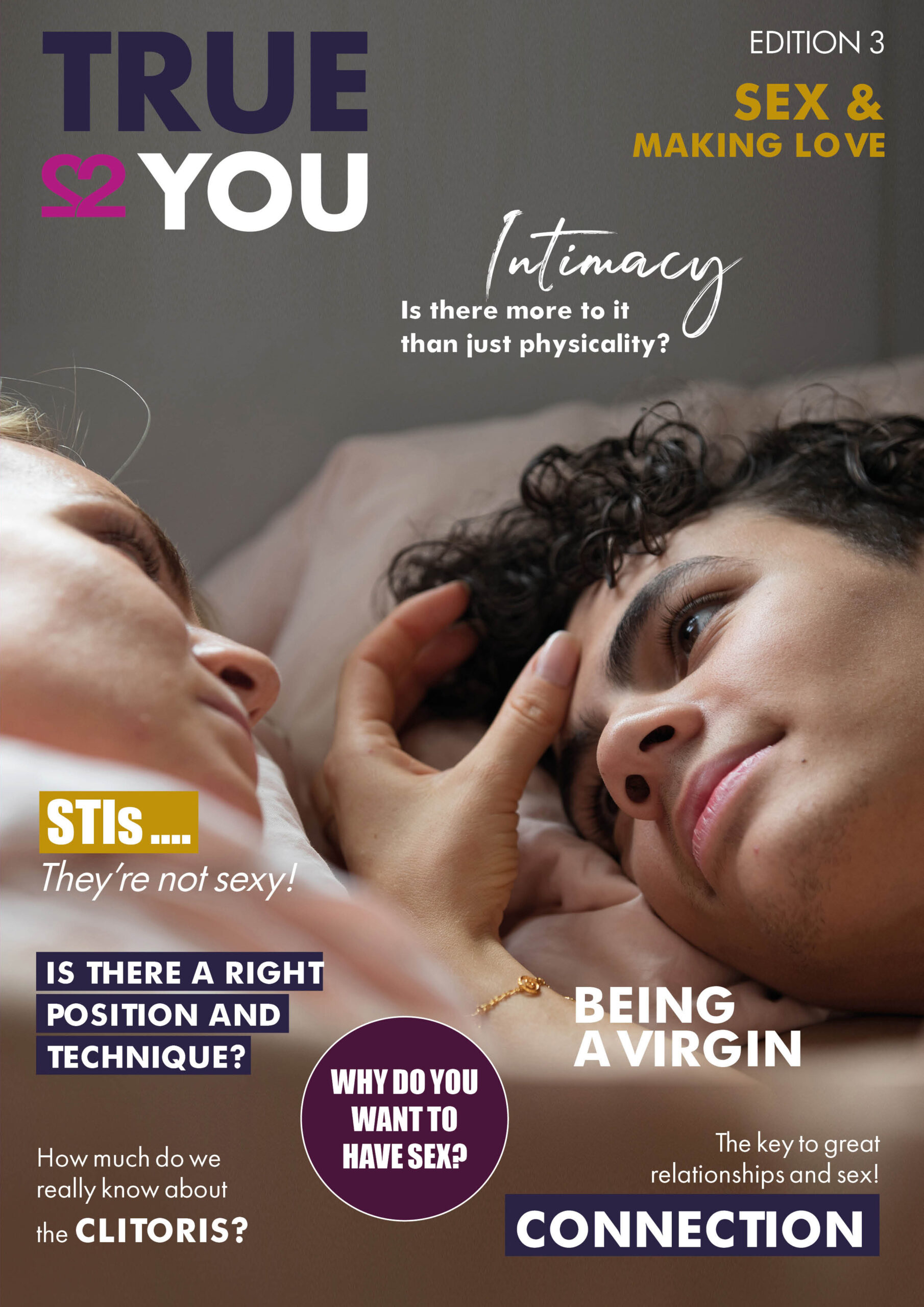
Youth Magazine
True2You Edition 3 Sex & Making Love
Let’s talk about sex!!
In this edition we explore why we want sex in the first place, is it because we are thirsty for love or needing relief? What’s physical pleasure, and are there any right positions or techniques? What is the secret to ‘great sex’? And is there a difference between sex and making love? And if so, what is it? Let‘s bust the myths around masturbation and go deep with orgasms…
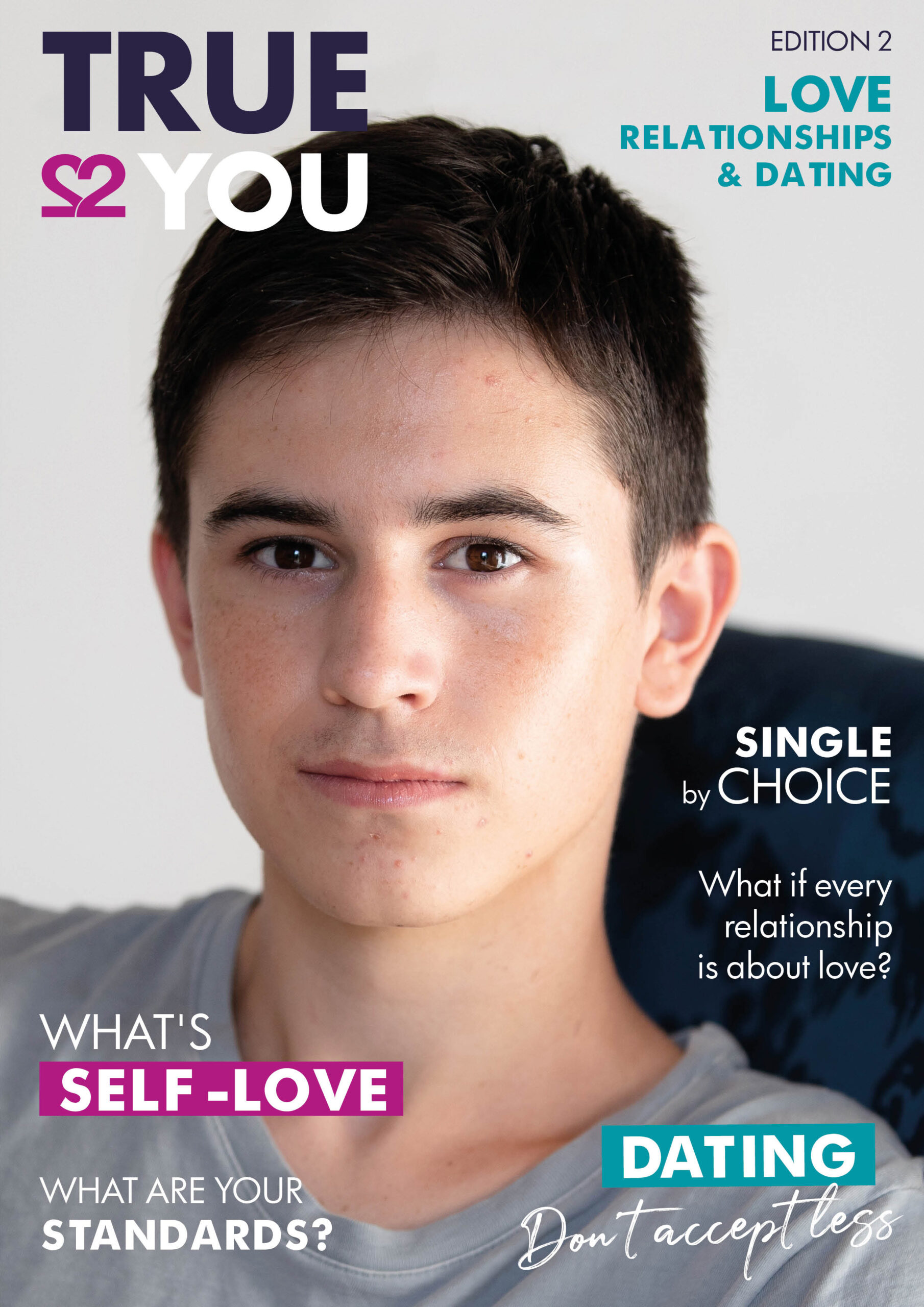
Youth Magazine
True2You Edition 2 Love, Relationships & Dating
Everything in life is about relationships. So how do you find someone who really loves you back, and who cares and respects you? And how can you be True2You when sometimes there are so many expectations of yourself and others that it makes it hard to just be yourself? And what about being single by choice? And what about Love? What if love is simple and fun, and starts with taking care of ourselves?
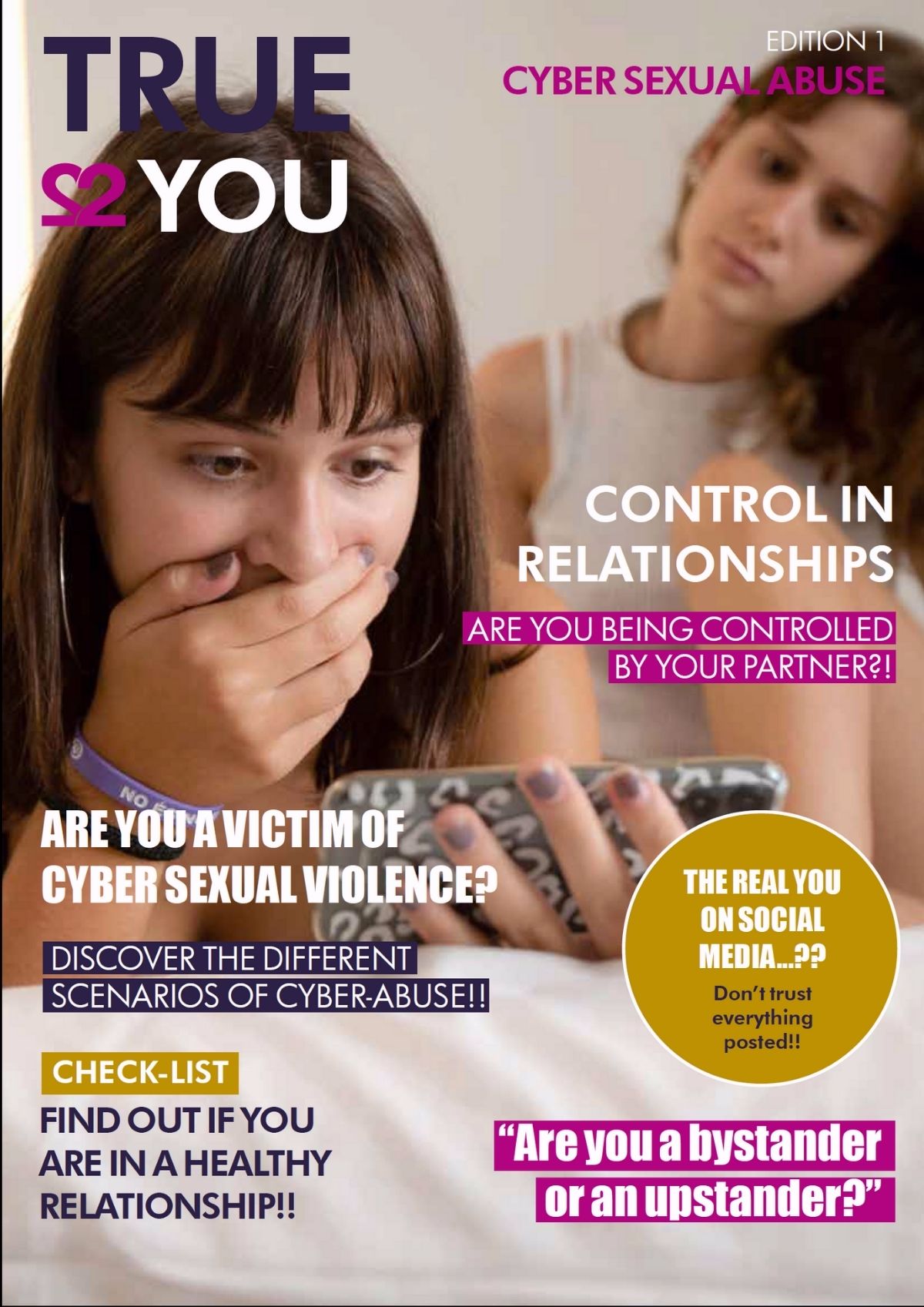
Youth Magazine
True2You Edition 1 Cyber Sexual Abuse
True2You offers girls and young women and boys and young men to NOT be dominated by ideals they must strive for and to NOT be dominated by beliefs that control our every day decisions and which we have normalized and often take for granted as we don’t know life to be in a different way. It empowers young people to build solidarity between each other and to identify their own and each other’s boundaries to live in a way that says clearly NO to abuse and violence and clearly YES to bodily integrity and honouring our bodies and ourselves by setting new standards
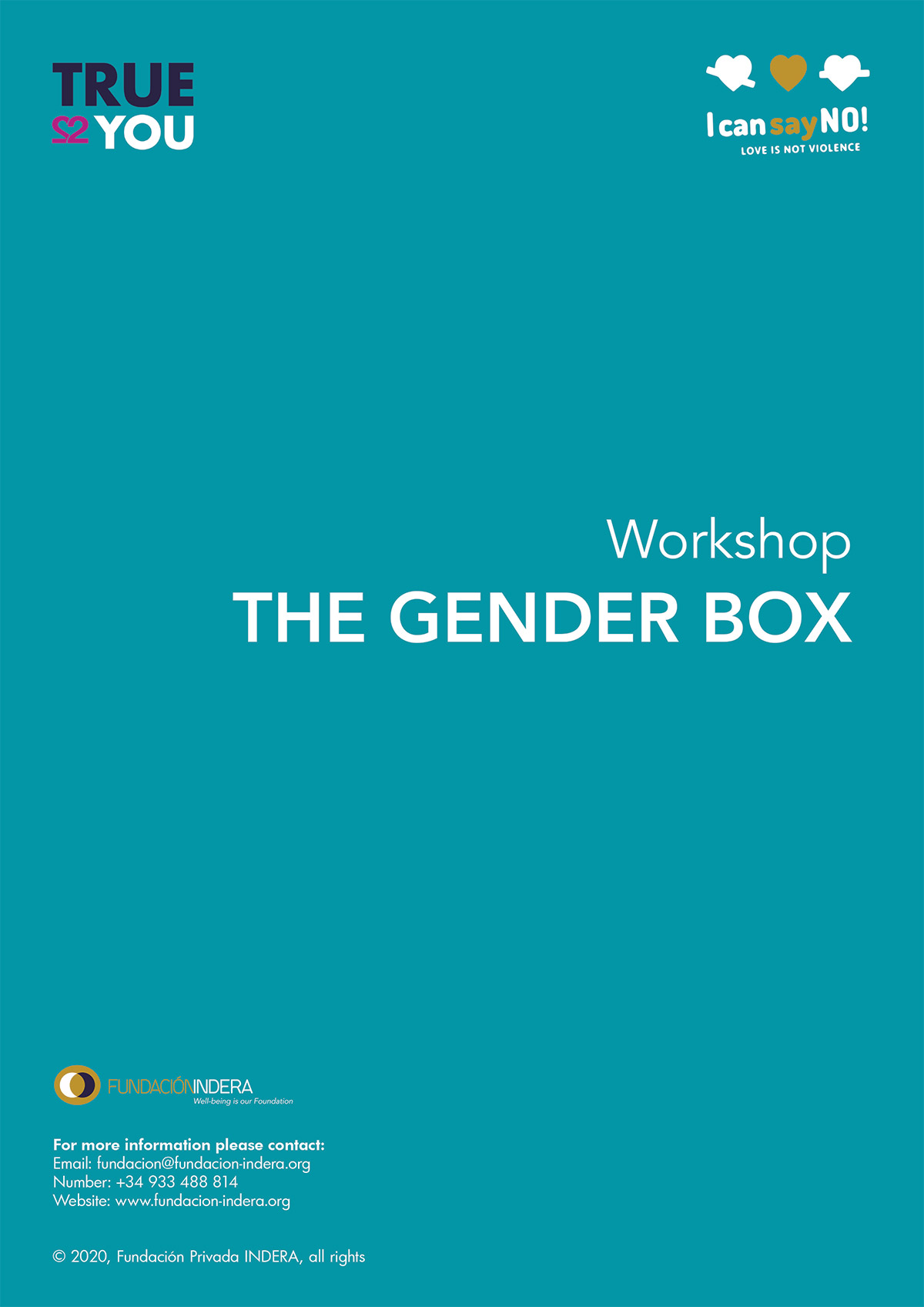
Workshop
The Gender Box
This workshop explores socialized gender roles and how we are tainted by images and believes. It offers a space to reflect about the way we learn to live in a Gender Box and invites people to take a critical look at our daily ways of seeing and interacting. It offers us to pause and think about how we have acquired such a vast, common sense and seemingly natural knowledge about our values, and ourselves and who we seem to be as a man or a woman in all our diversity.
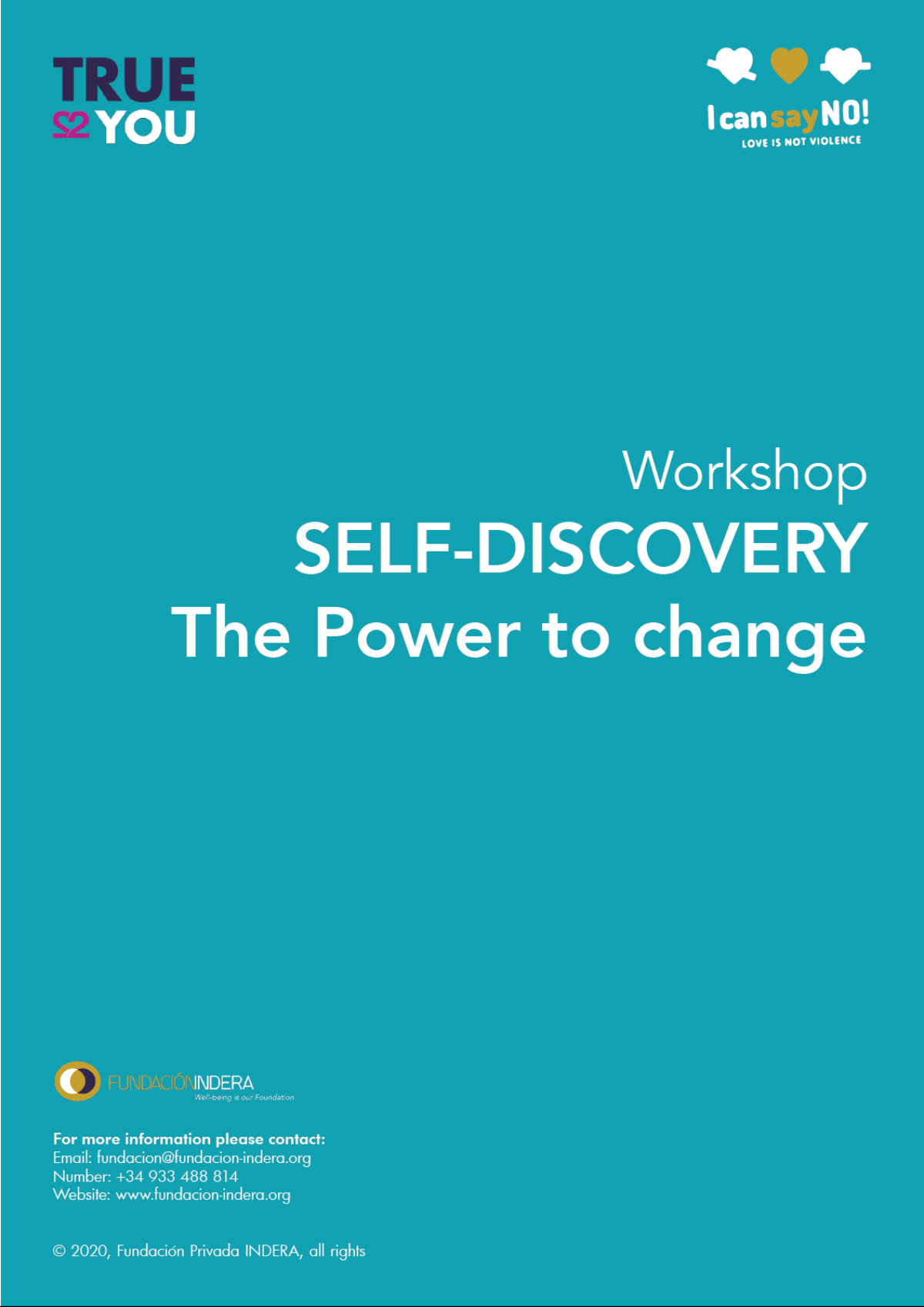
Workshop
Self-Discovery – The Power to change
This workshop explores that self-love and self-care are two simple daily things that empower us to live self-responsibly and put us into the driver’s seat of our life.
Everybody can be loving or unloving, it is always a choice! However, we are imposed upon by images, ideals and beliefs, which have become our daily normal diet and we have developed behaviours based on those without being aware of it. We learn these attitudes and behaviours through the stereotypes of what society thinks it means to “act like a man” and to “act like a woman” and we can free ourselves from the restrictions of these boxes/prisons once we see them as unattainable and undesirable goals. Then we can start the process of change.
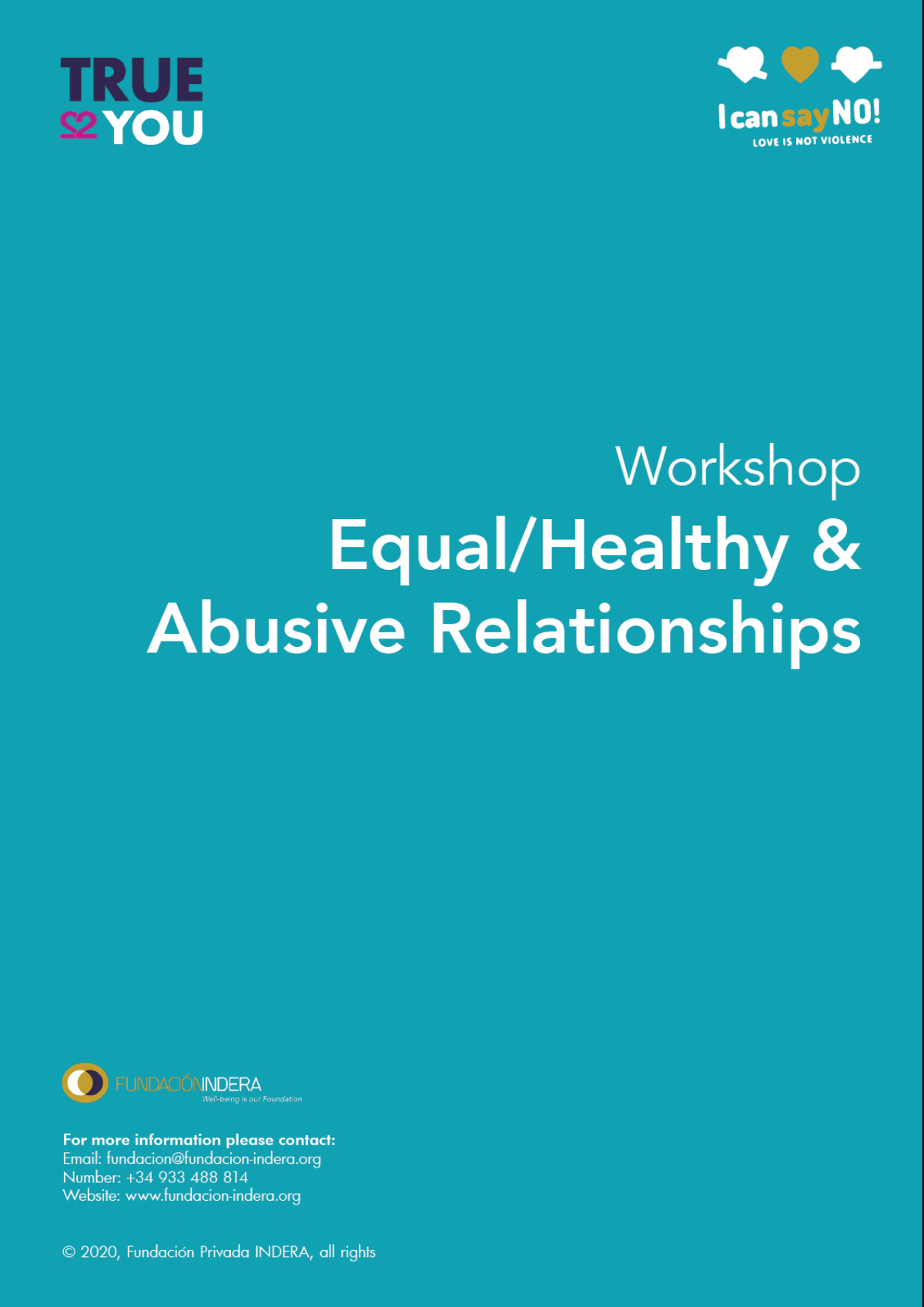
Workshop
Equal/Healthy & Abusive Relationships
This workshop offers to define together with the participants what makes a relationship equal and healthy or unequal and abusive.
It offers a better understanding of the different forms of violence and a reflection on both our own and our partners’ rights in a relationship and learning to define and communicate our expectations and needs from the partner to respect these rights.
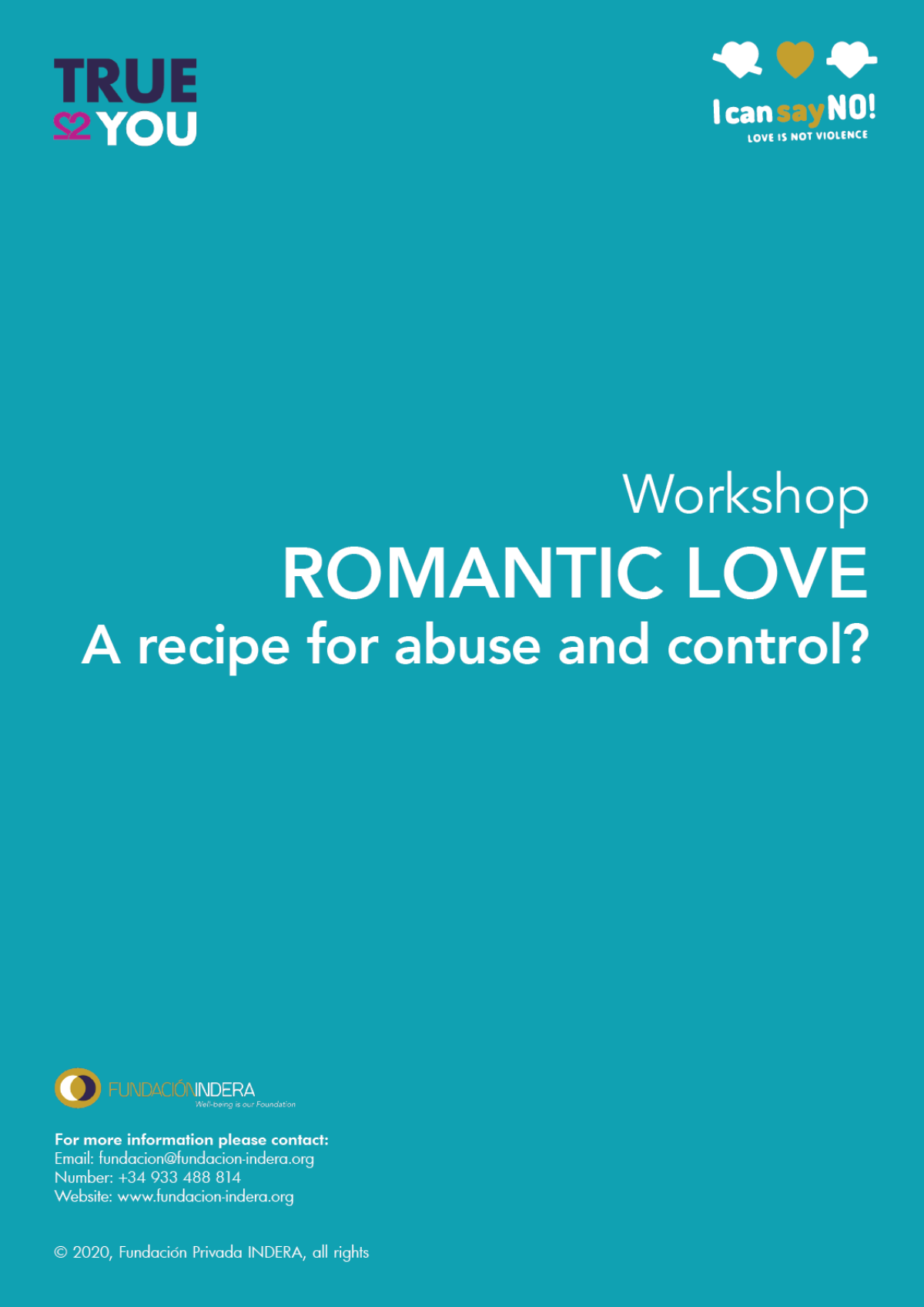
Workshop
Romantic Love - A recipe for abuse and control?
This workshop offers to speak about the warning signs of an abusive relationship and to raise awareness about how romantic myths that we learn through socialization are normalizing abusive relationships and possible warning signs for abusive relationships.
Reflecting on what society treats as romantic love often involves controlling behaviors and fits with the warning signs of an abusive relationship. To think about what we call love and romance and to give the possibility to think about these concepts in new perspectives.
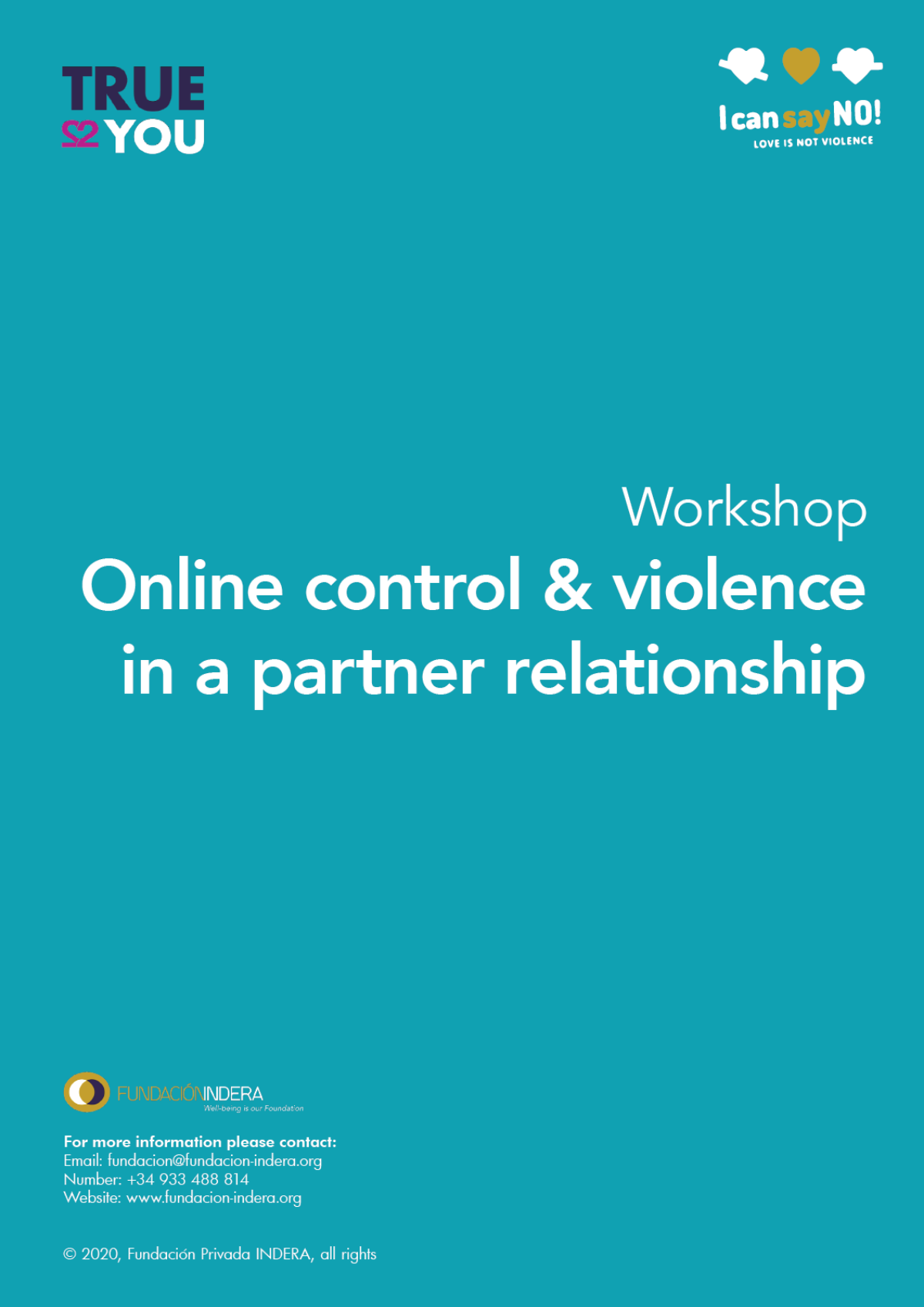
Workshop
Online control & violence in a partner relationship
This workshop offers to raise awareness about online forms of control and violence in a youth partner relationship and encourages youth to show support to survivors.
It transmits knowledge of possible online manifestations of control and violence in a youth partner relationship and sources of support in such cases and supports the development of a critical attitude towards such behaviors. It also develops an understanding of survivors’ needs
encouraging standing up to control/violence in a partner relationship.
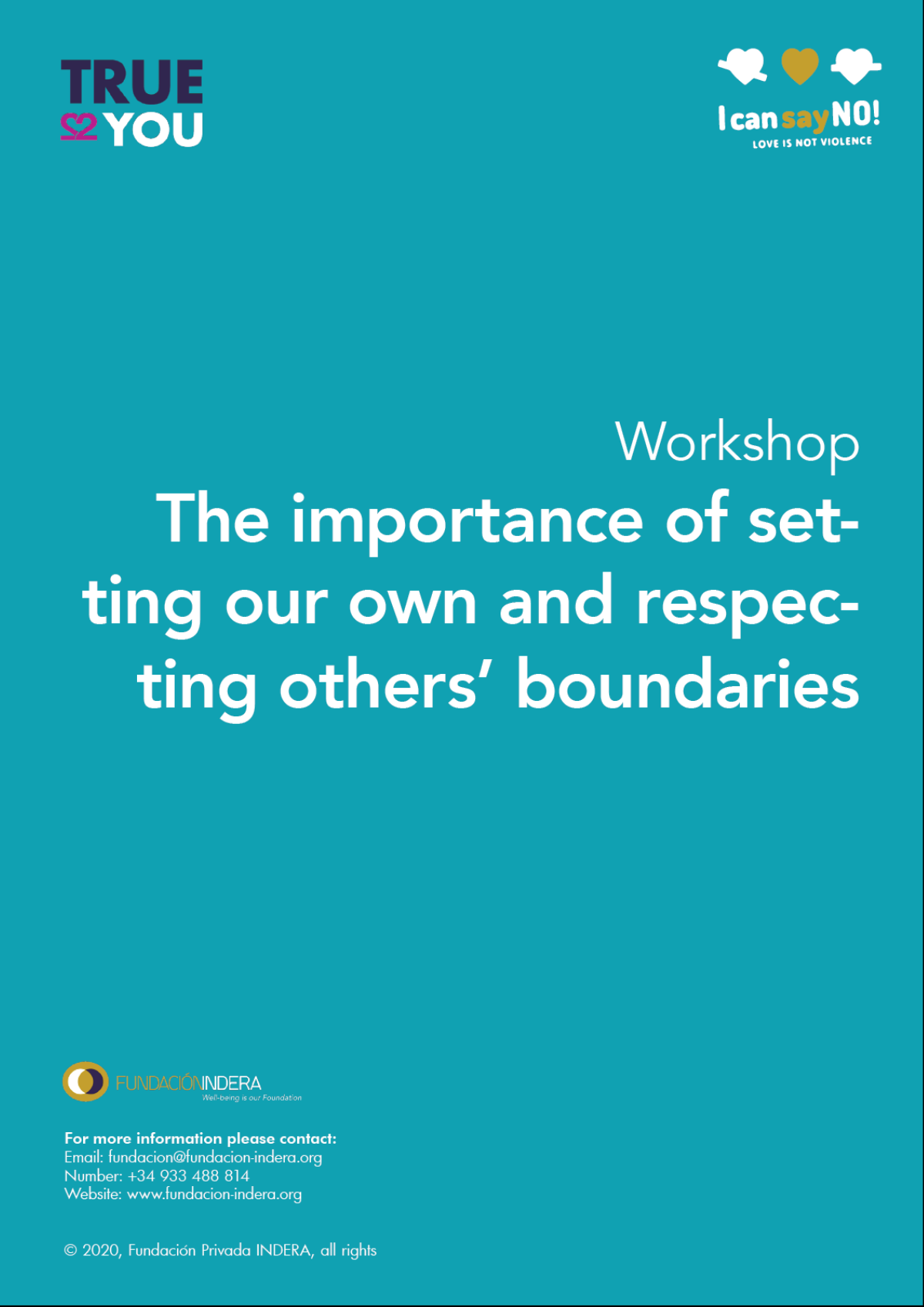
Workshop
The importance of setting our own and respecting others' boundaries
This workshop offers to explore our own boundaries and the boundaries of others and to learn the importance of knowing and respecting them.
What and where are my boundaries, how do I set them and to whom? How to recognize other people’s boundaries and how to respect them?
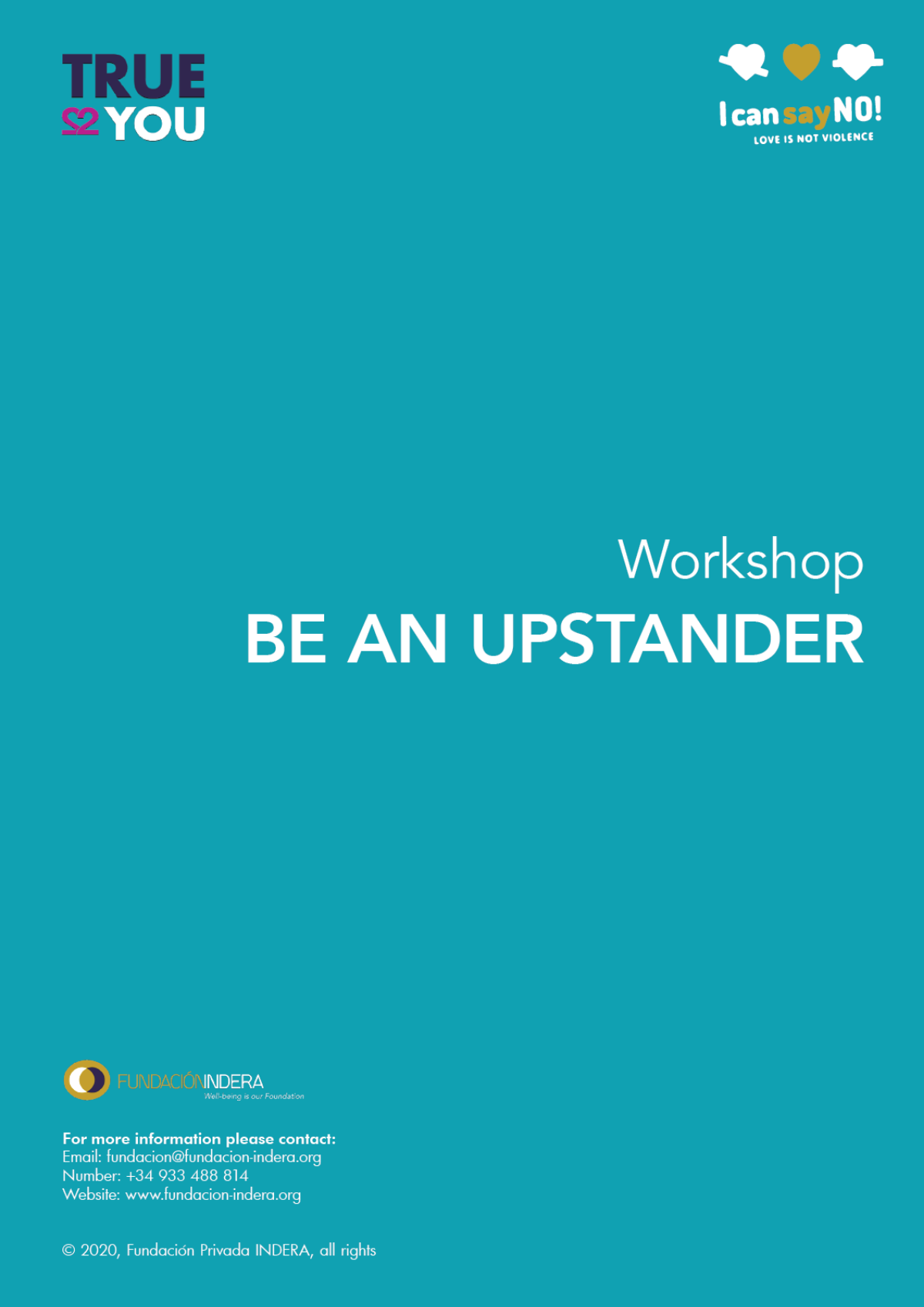
Workshop
Be an Upstander
This workshop offers to reflect on what it means to eb an upstander in relation to sexual and gender-based violence and to offer techniques and skills to enable safe intervention.
It provides an increased understanding of the role of the bystander in instances of sexual and gender-based violence, including cyber violence and supports to develop a critical attitude towards sexist cultural norms that often lead to gender-based violence. It increases participants knowledge and skills for safe and effective intervention as well as willingness to intervene safely.
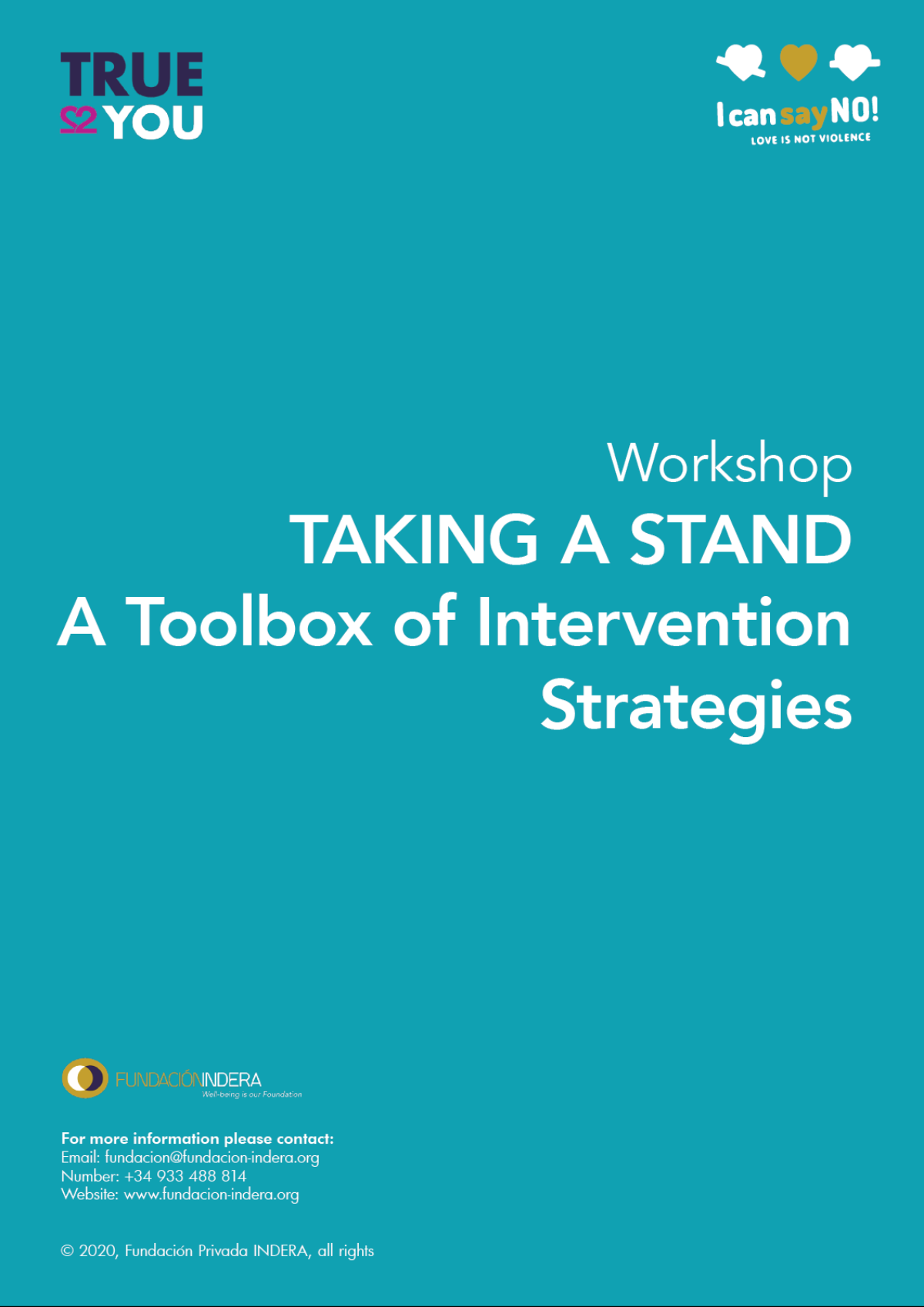
Workshop
Taking a stand - A toolbox of intervention strategies
This workshop raises awareness on students’ responsibility as bystanders and encourages them to become upstanders when witnessing violence in intimate partner relationships.
With an increased understanding of the role of the bystander in instances of sexual and gender-based violence, including cyber violence, young people learn to challenge cultural norms and develop the skills for safe and effective intervention as well as a willingness to intervene safely.
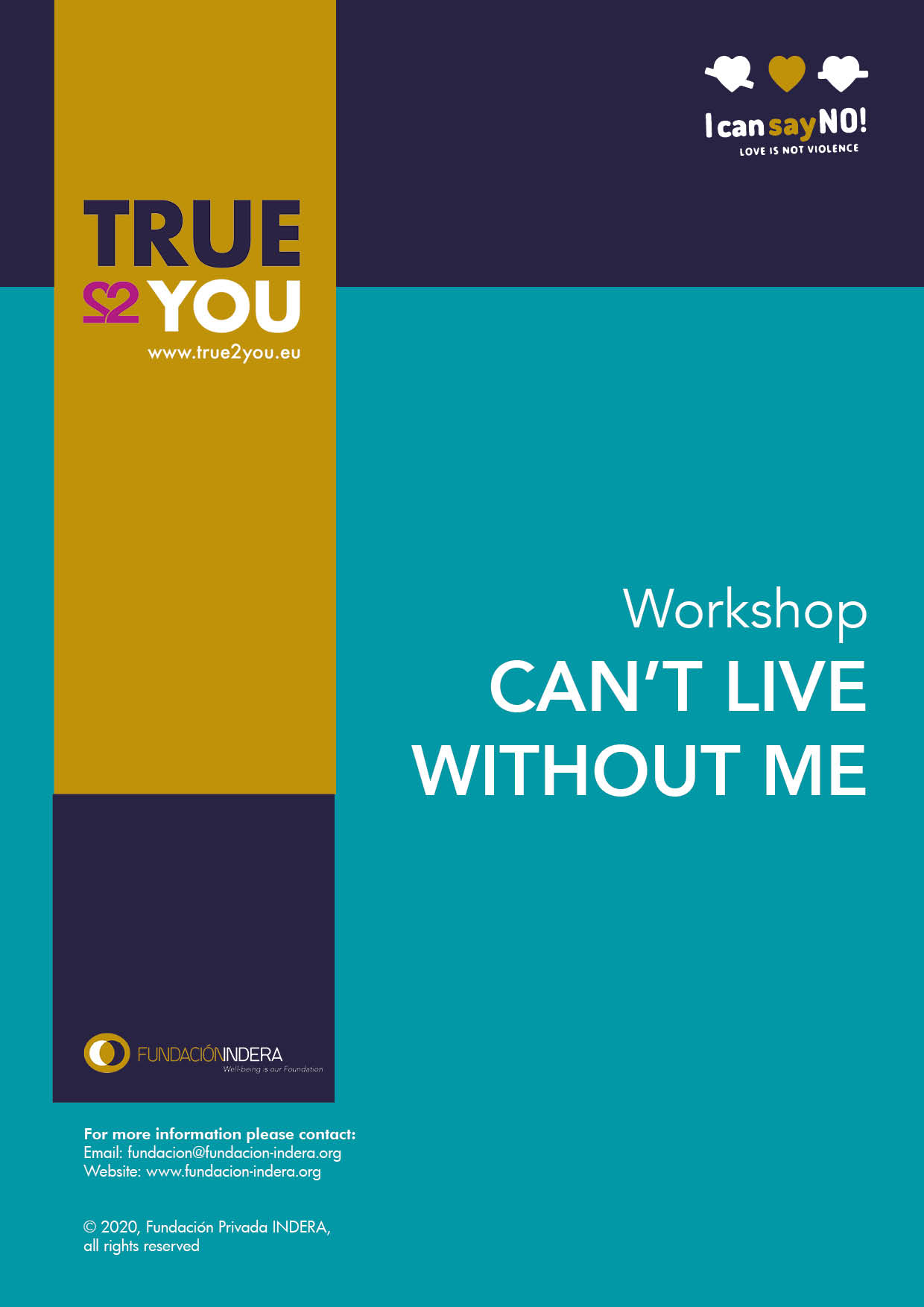
Workshop
I can't live without me
This workshop, design by Peer Educators supports young people to give themselves the importance they deserve. It’s about how we can prioritize ourselves and know ourselves better. The importance of listening to our body, to be aware of our thoughts and to understand our emotions. All of this will not only help us to have better relationships, but more importantly, to have a better relationship with ourselves.
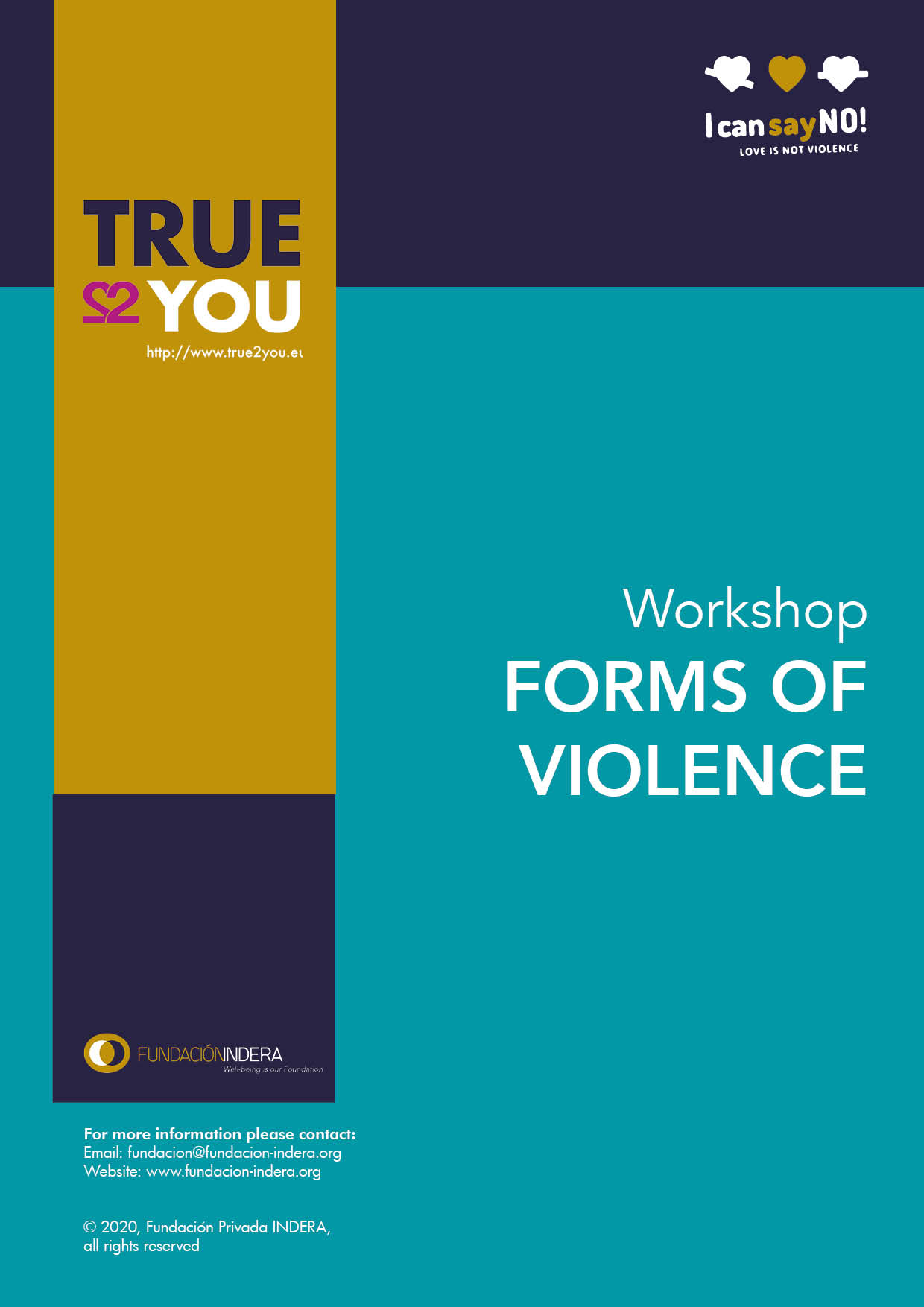
Workshop
Forms of Violence
This workshop, designed by Peer Educators supports young people to see that violence is so normalized that we not only accept it, but that we also justify it. “If we analyze our relationships, it is likely that in many of them there has been some kind of violence at some point. Maybe you, without realizing it, have acted violently. It is our decision whether we want to educate ourselves on the subject or not.”
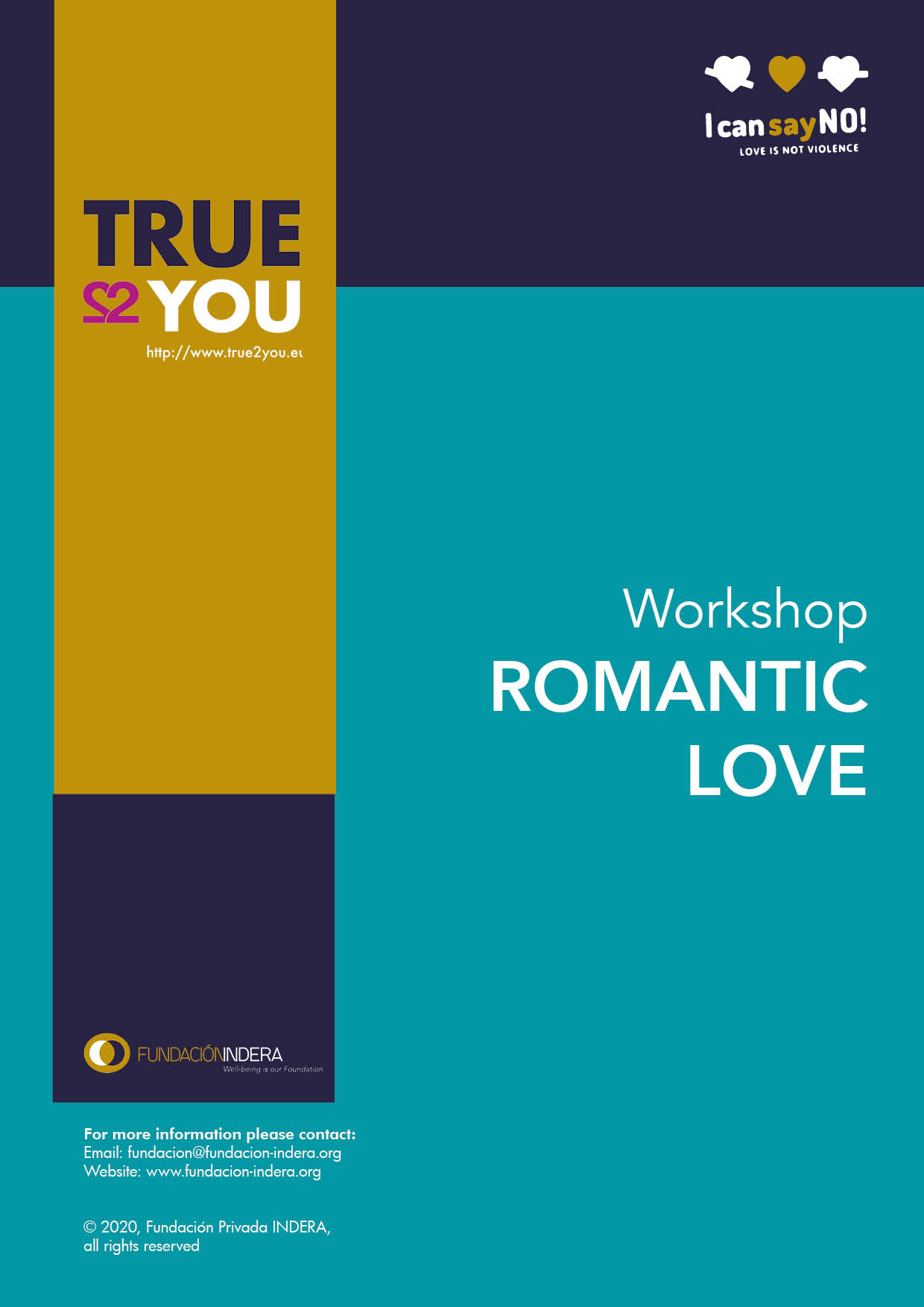
Workshop
Romantic Love
This workshop, designed by Peer Educators supports young people to reflect on what we have been told how love has to be. How we have learned and internalized a series of myths about romantic love that influence us when it comes to having a relationship. “Instead of copying and normalizing what we have seen and been taught, we have to know ourselves and question what it is that we specifically want when it comes to having a relationship.”
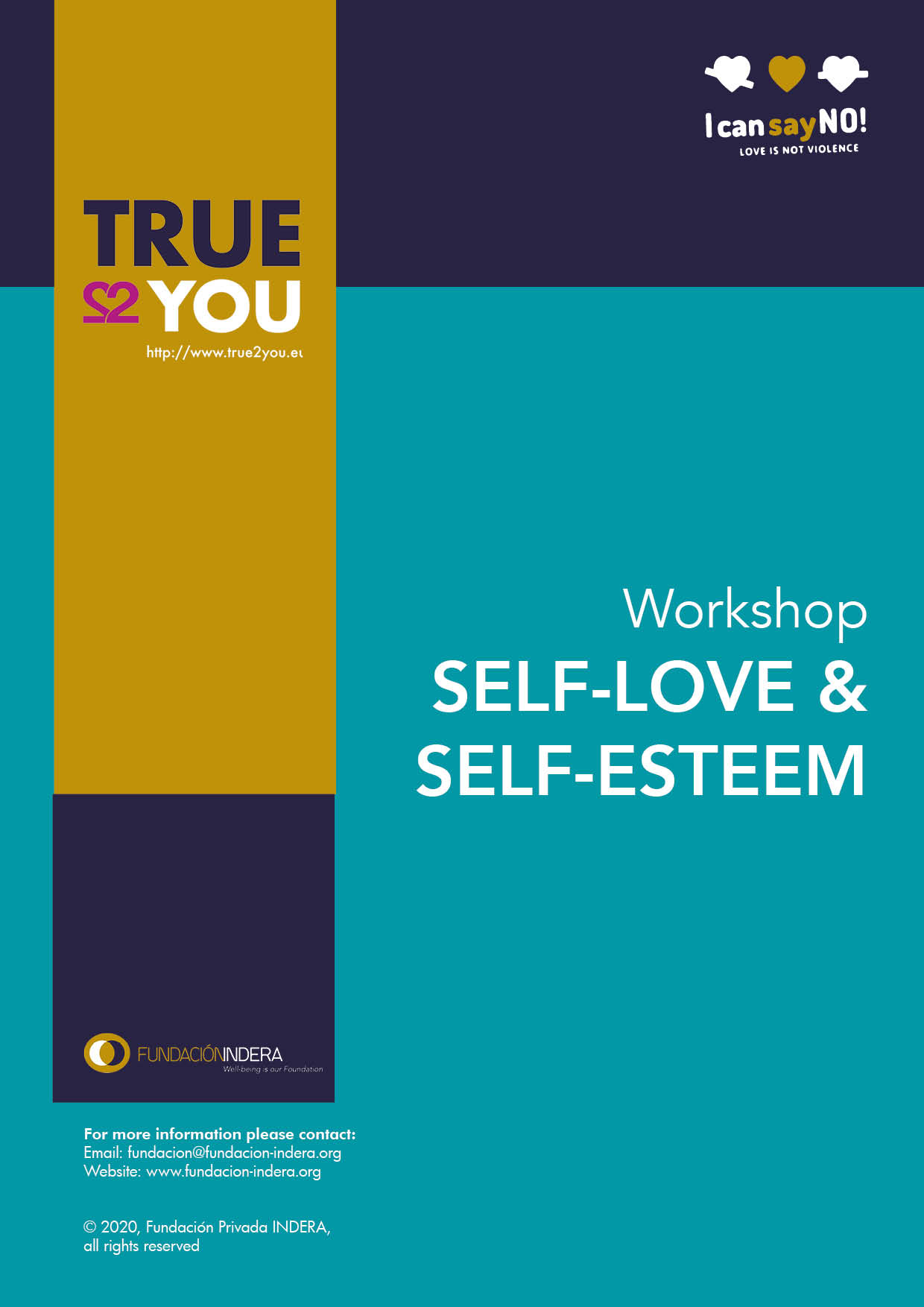
Workshop
Self-Love & Self-esteem
This workshop, designed by Peer Educators supports young people to build self-love. “Fortunately or unfortunately, we can’t change our body or anything else for the moment. And we can’t control what other people say to us. But what we can control is what we say to ourselves. If we treat our body well and let it inform us about how things affect us, we can observe life and be less affected by it.

Workshop
Toxic Relationships
This workshop, designed by Peer Educators supports young people to build non toxic relationships. “The responsibility of who we choose as a partner is ours. If we have a toxic relationship with ourselves, we cannot expect to have a healthy relationship with another person.”
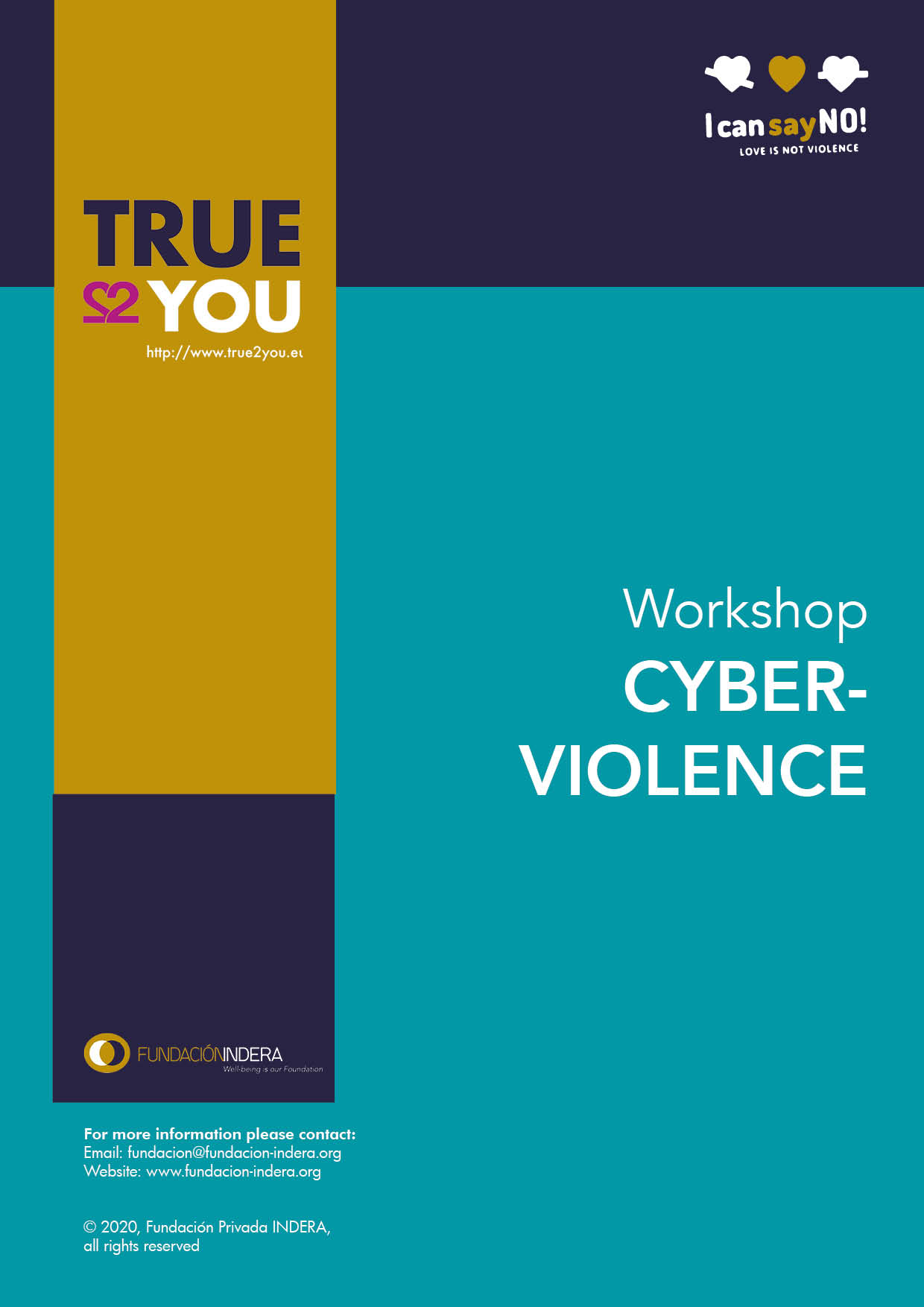
Workshop
Cyber Violence
This workshop, designed by Peer Educators aims to raise awareness of the forms of control and online violence in relationships and to alert young people against such practices of normalized abuse.
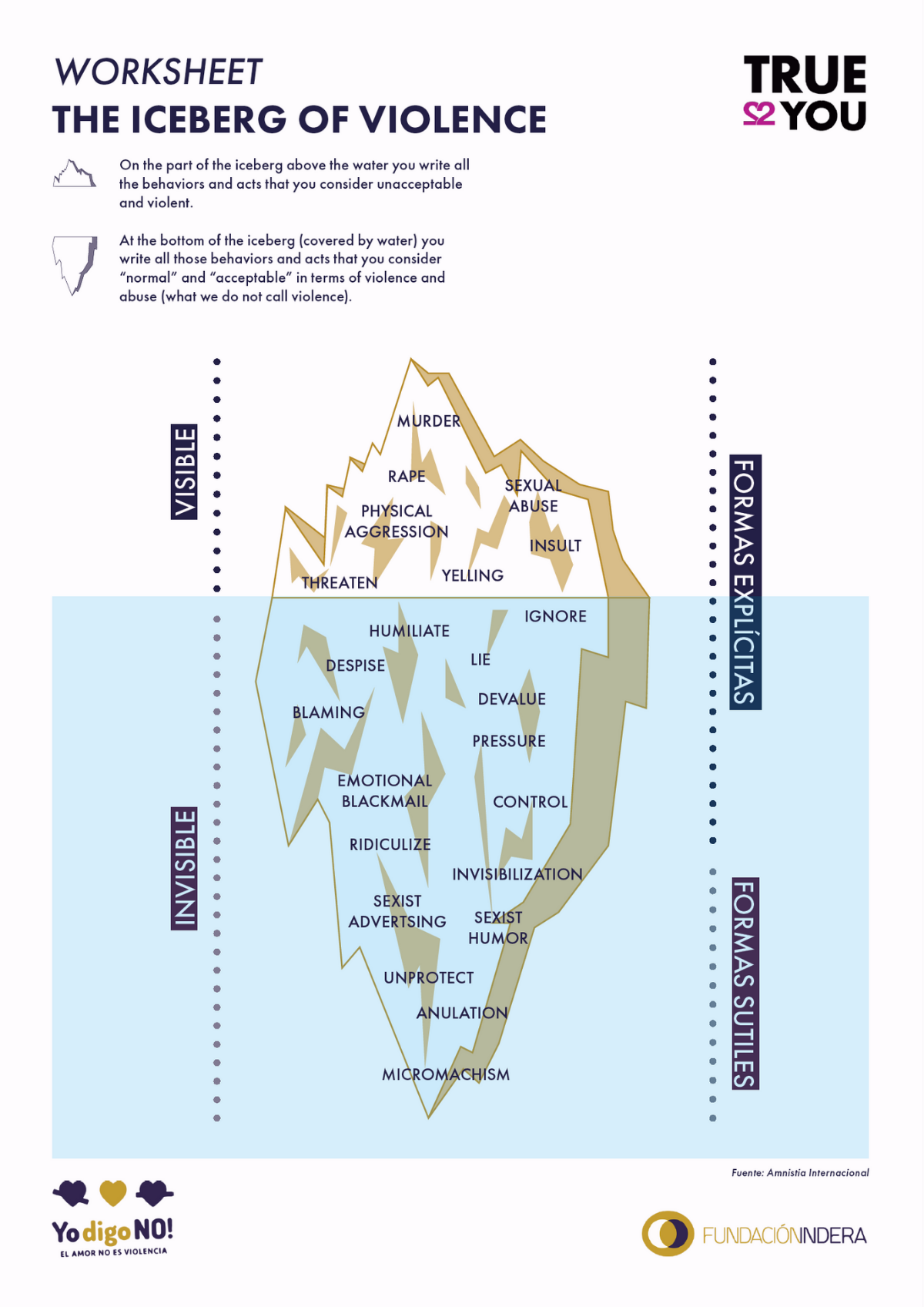
WORKSHEET
The Iceberg of Violence
To look at violence through the view of the iceberg exercise helps to understand how many behaviors contribute to the extremes we then clearly identify as violence. The majority of the iceberg, in whatever form it takes, is below the surface of the water, out of sight and the same happens with violence. There are many forms of violence that are invisible or even normalized in our day-to-day life.
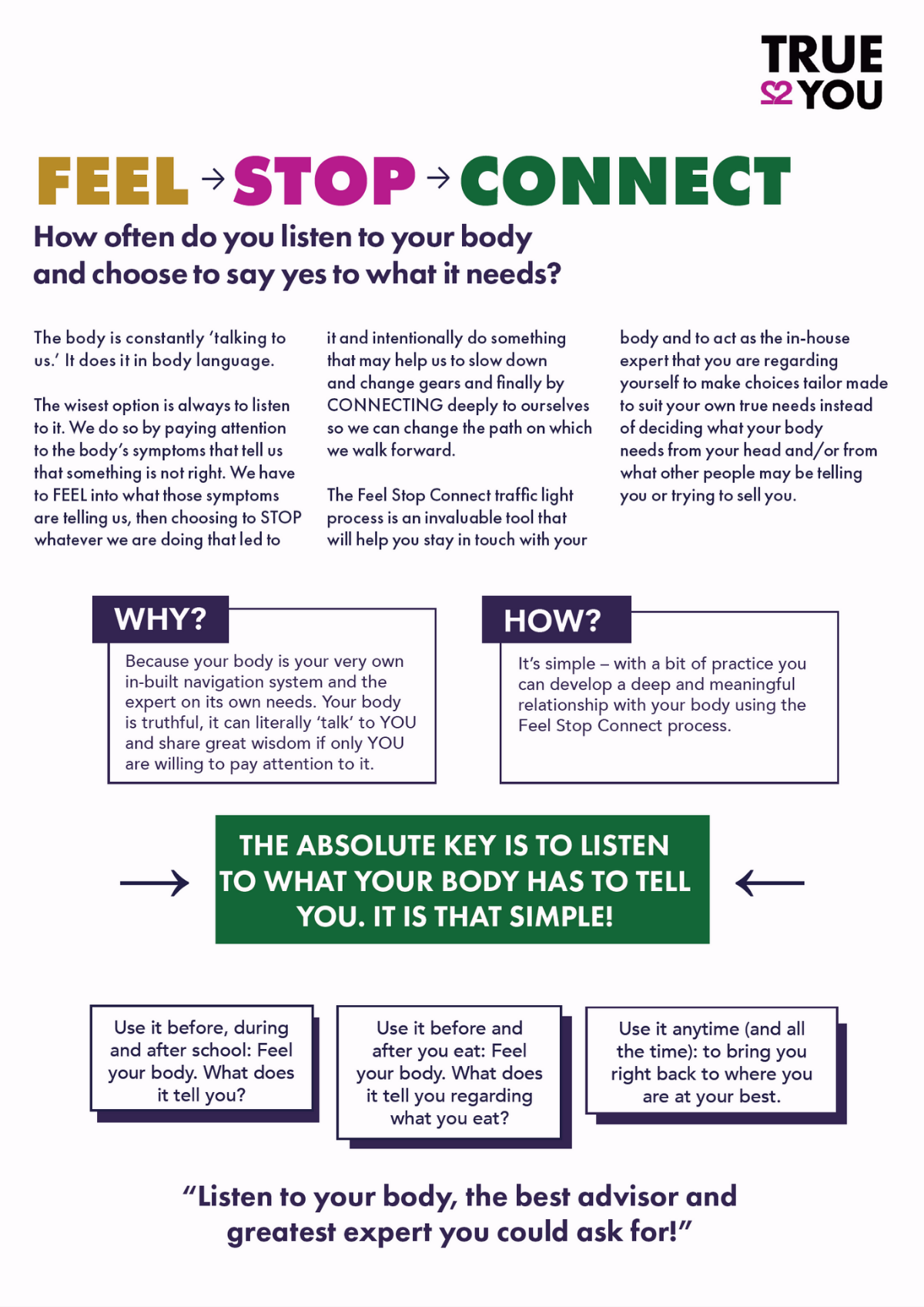
WORKSHEET
FEEL - STOP - CONNECT
How often do you listen to your body and choose to say yes to what it needs?
The Feel-Stop-Connect traffic light is a great tool that will help you stay in touch with your body and to act as the in-house expert that you are regarding yourself to make choices tailor made to suit your own true needs instead of deciding what your body
needs from your head and/or from what other people may be telling you or trying to sell you.

Training Manual
Capacity Training Manual
This manual was developed for peer educators, teachers and youth workers
for awareness-raising and training for young people in formal and non-formal educational settings to prevent gender-based violence, and violence against women in particular, by addressing its root causes as early as possible.
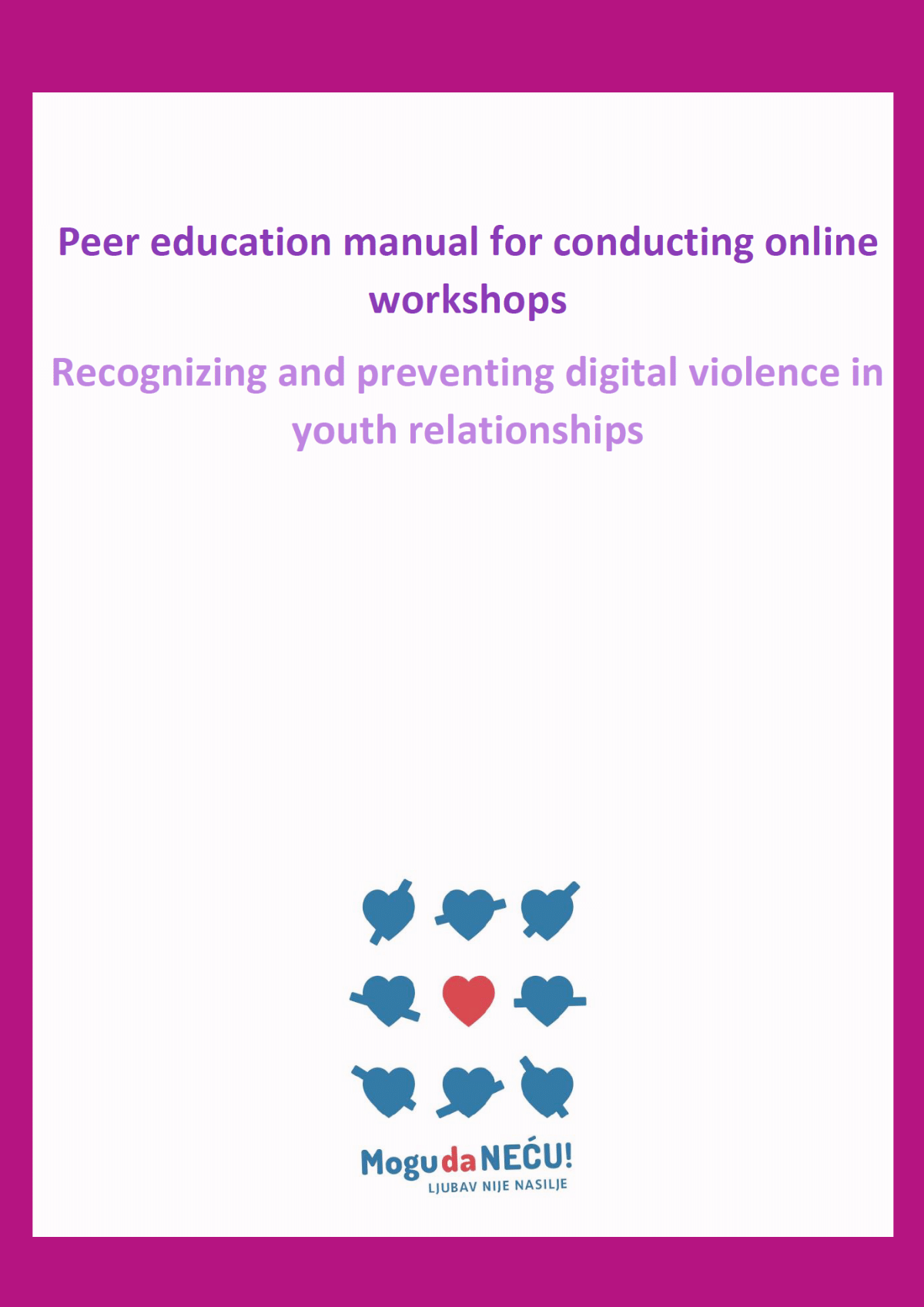
Training Manual
Peer Education Manual for Online Workshops
This Manual contains guidelines for peer educators on how to conduct online workshops (which were originally conceived to be done in physical settings). It is, therefore, complementary to the above Capacity Training Manual, but this one was specifically written to empower educators to use it for virtual youth workshop preparation and implementation.
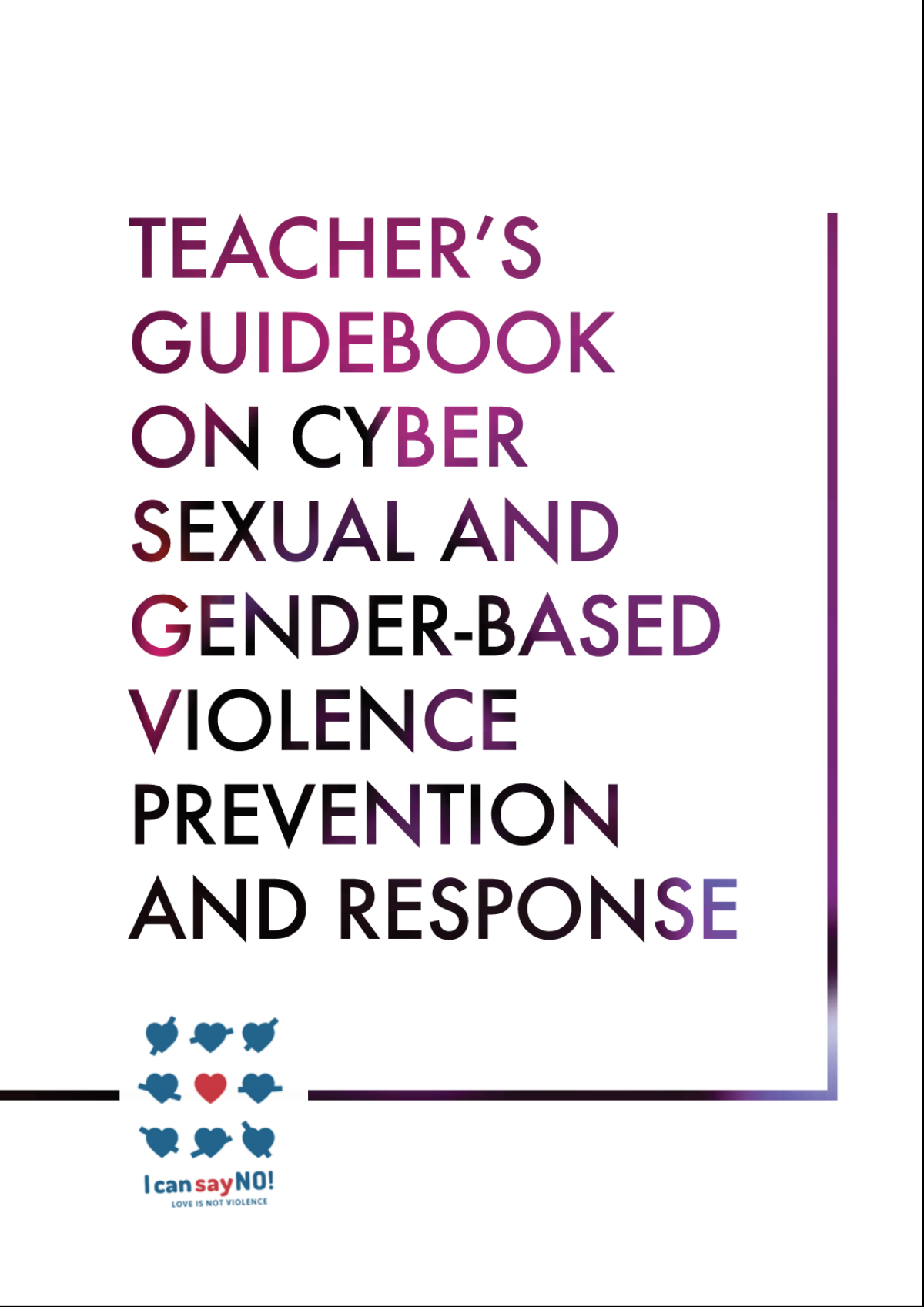
Teachers Guidebook
Teachers Guidebook on cyber sexual and gender based violence prevention and response
This guidebook provides teachers with information, materials, legal frameworks and international best practices on how to address and respond to cyber sexual and gender based violence in school settings.
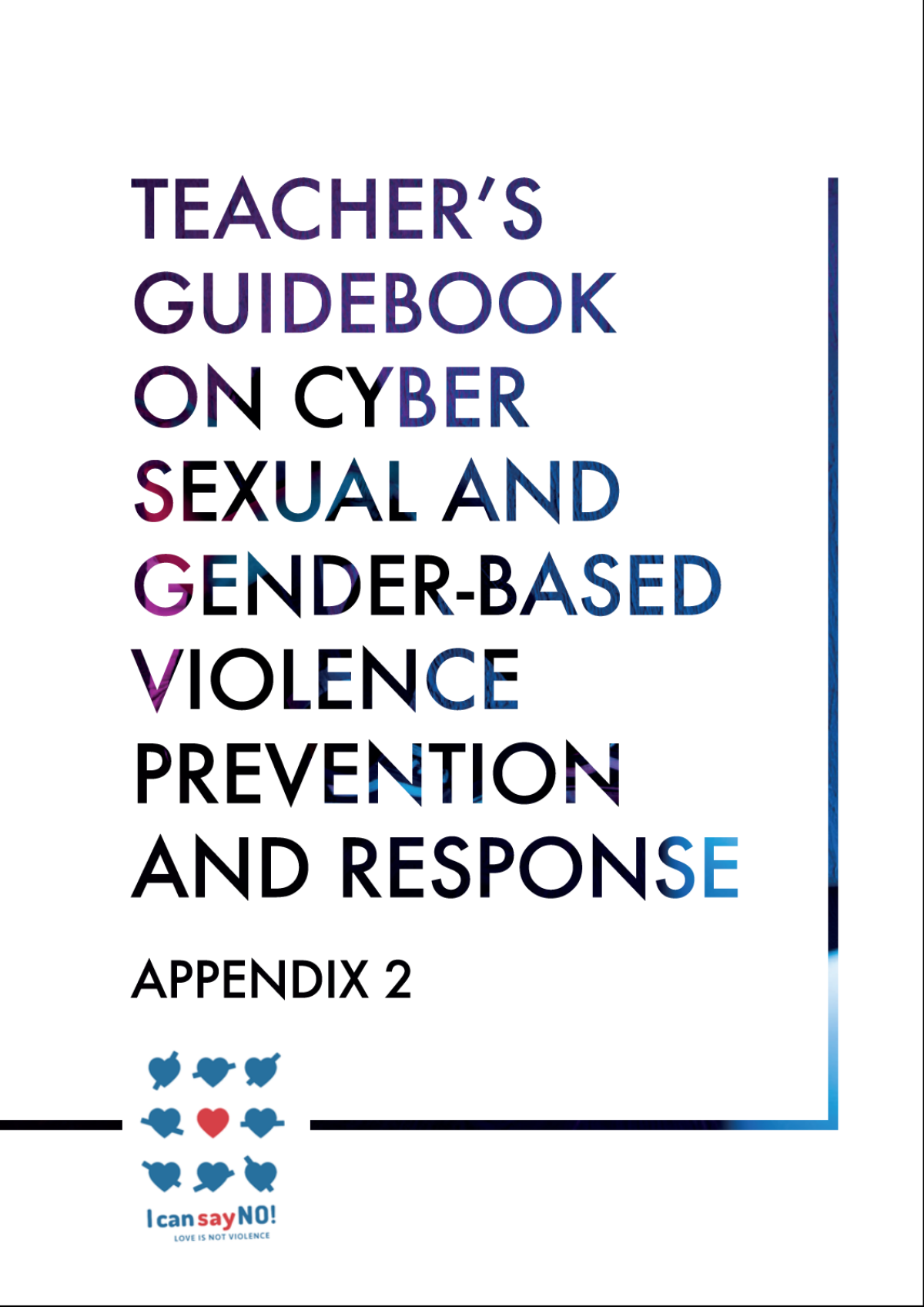
Teachers Guidebook
Appendix to the Teachers Guidebook on cyber sexual and gender based violence prevention and response
This Appendix informs about the national legal frameworks, institutional frameworks and the reporting and referral system.
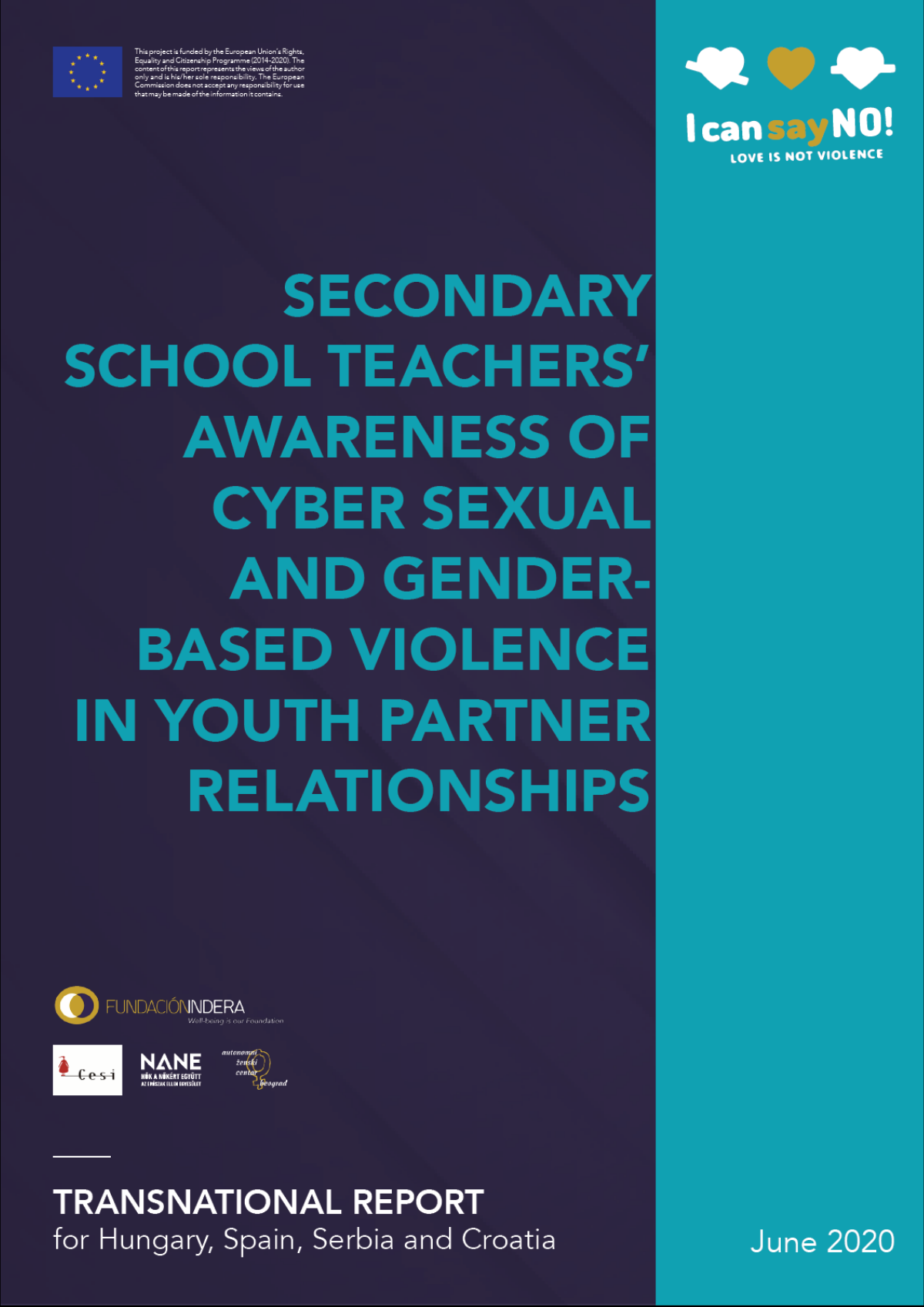
Report
Report on Teacher's awareness of cyber sexual and gender based violence
This transnational report looks at secondary school teacher’s awareness of cyber sexual and gender based violence in youth partner relationships in Croatia, Hungary, Serbia and Spain.
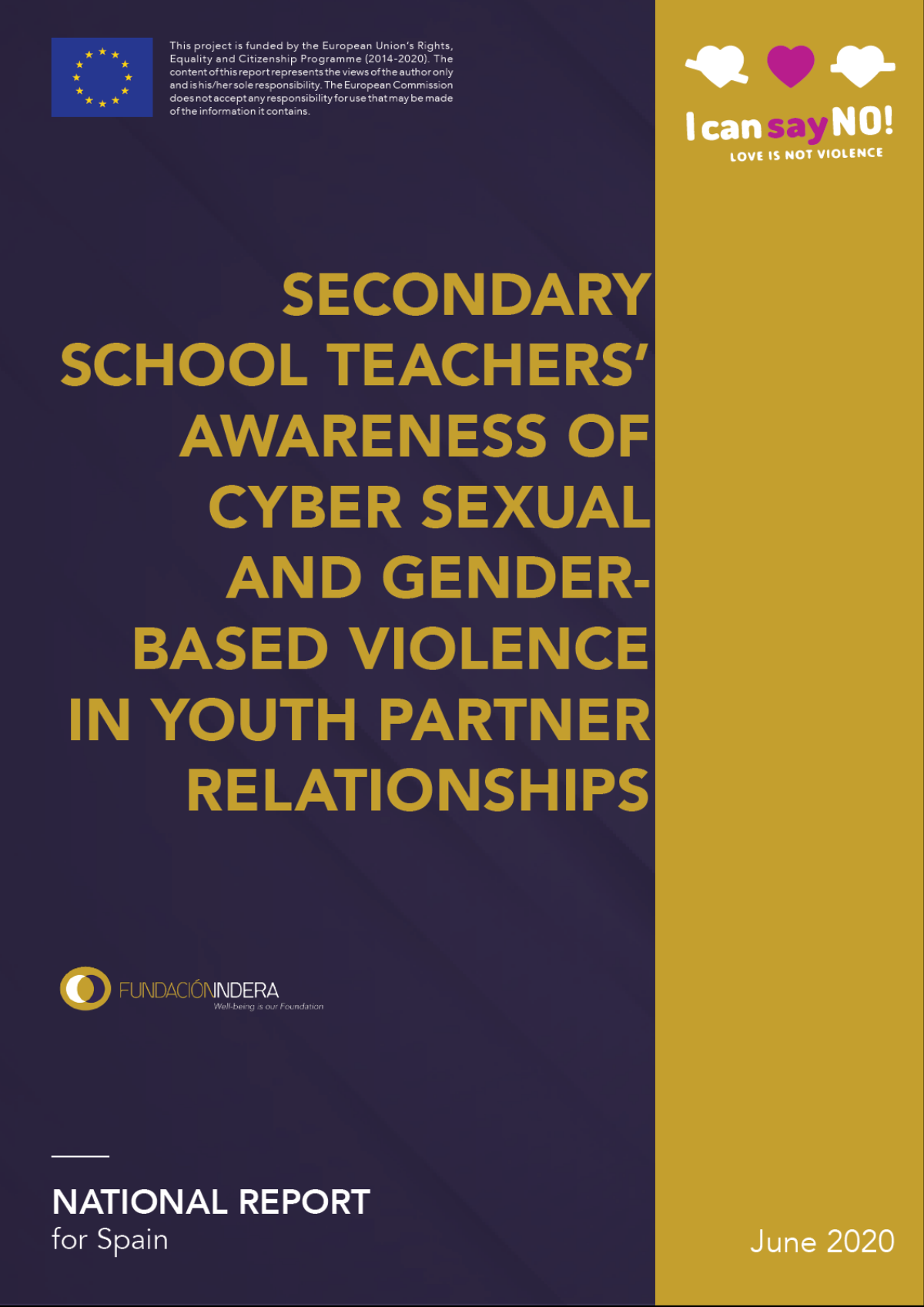
Report
Report on Teacher's awareness of cyber sexual and gender based violence - SPAIN
This national report looks at secondary school teacher’s awareness of cyber sexual and gender based violence in youth partner relationships in Spain.
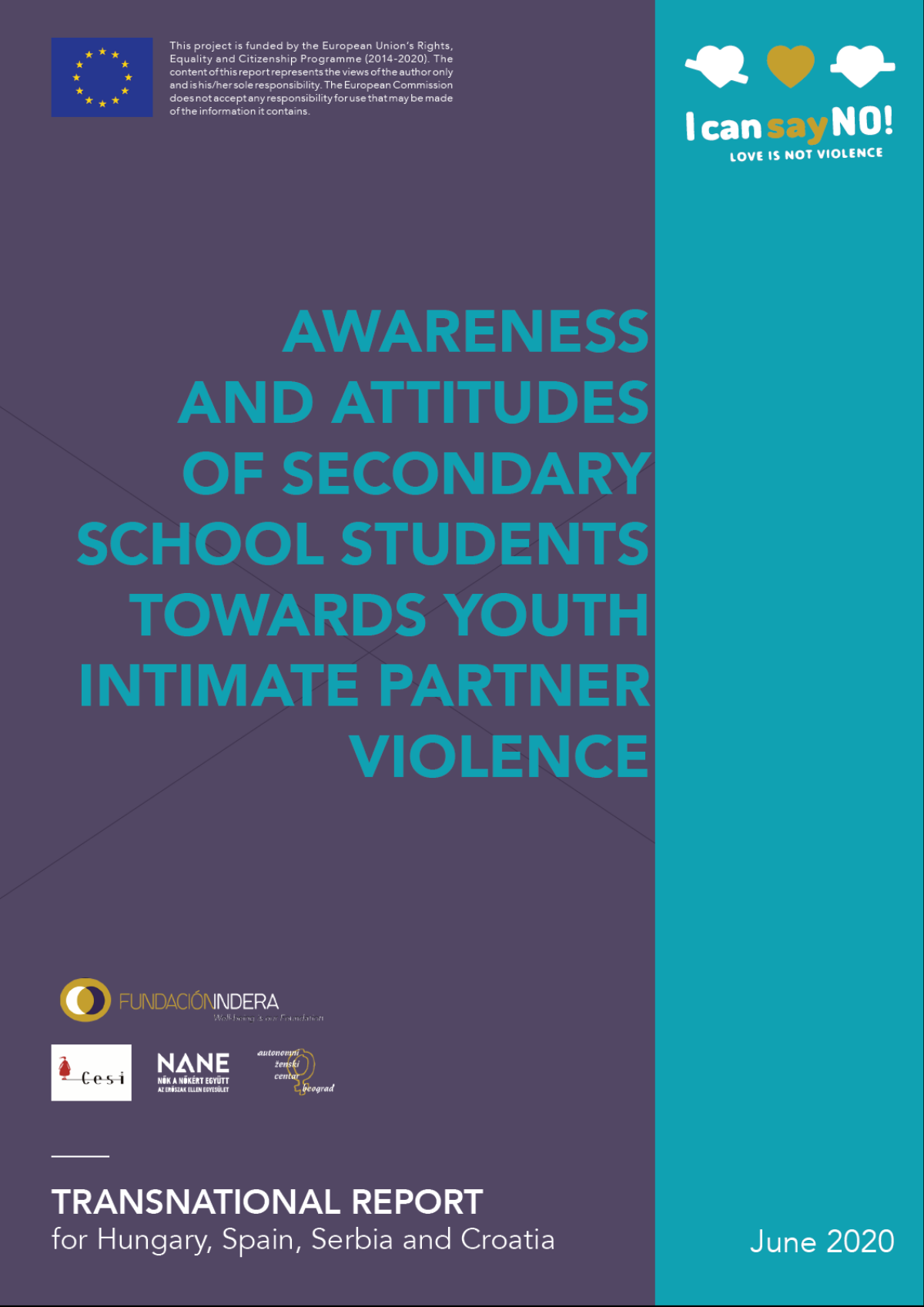
Report
Report on students awareness and attitudes towards intimate partner violence
This transnational report looks at students awareness and attitudes towards cyber sexual and gender based violence in intimate partner relationships in Croatia, Hungary, Serbia and Spain.

Report
Report on students awareness and attitudes towards intimate partner violence - SPAIN
This national report looks at students awareness and attitudes towards cyber sexual and gender based violence in intimate partner relationships in Spain.
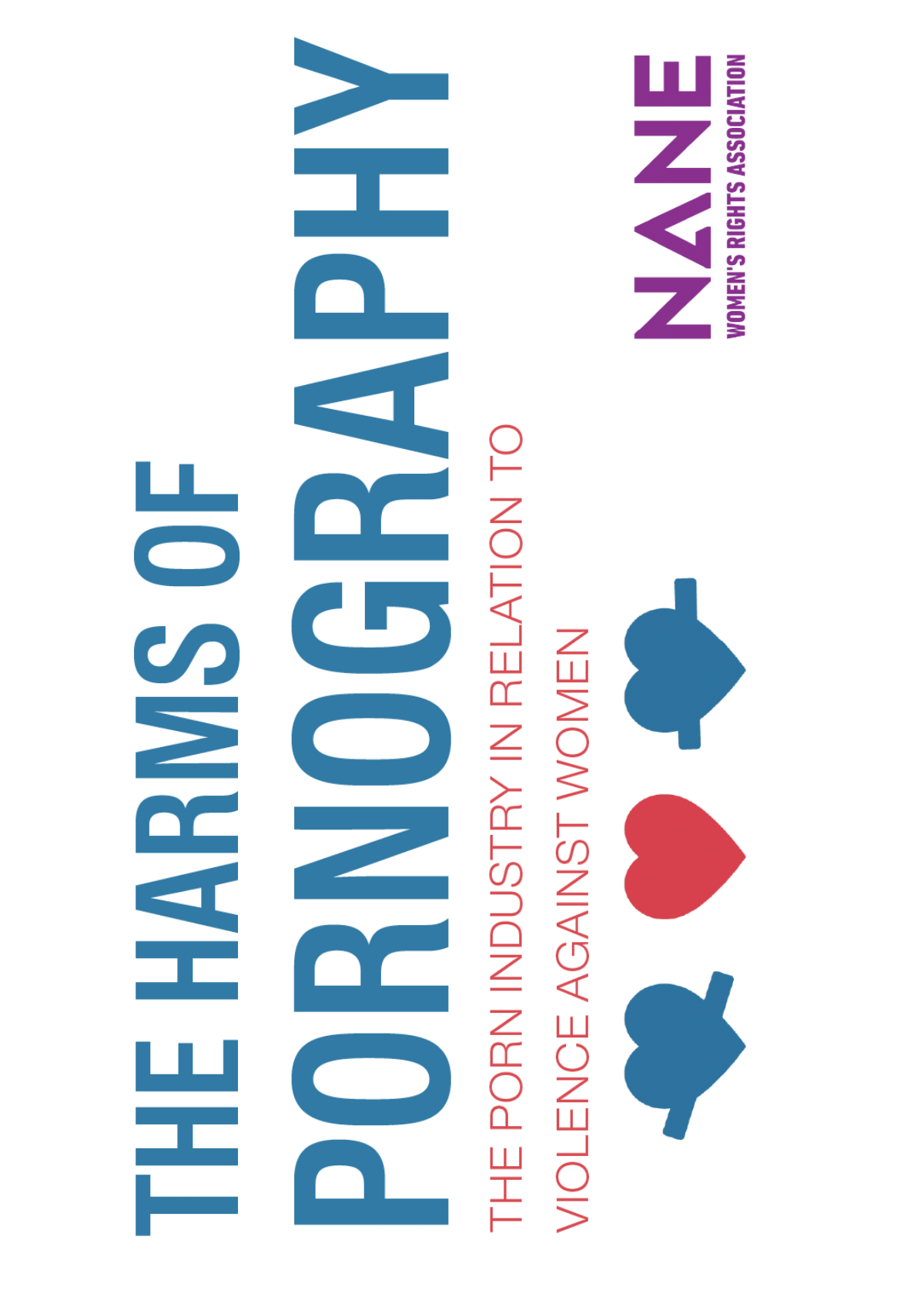
Flyer
THE HARMS OF PORNOGRAPHY
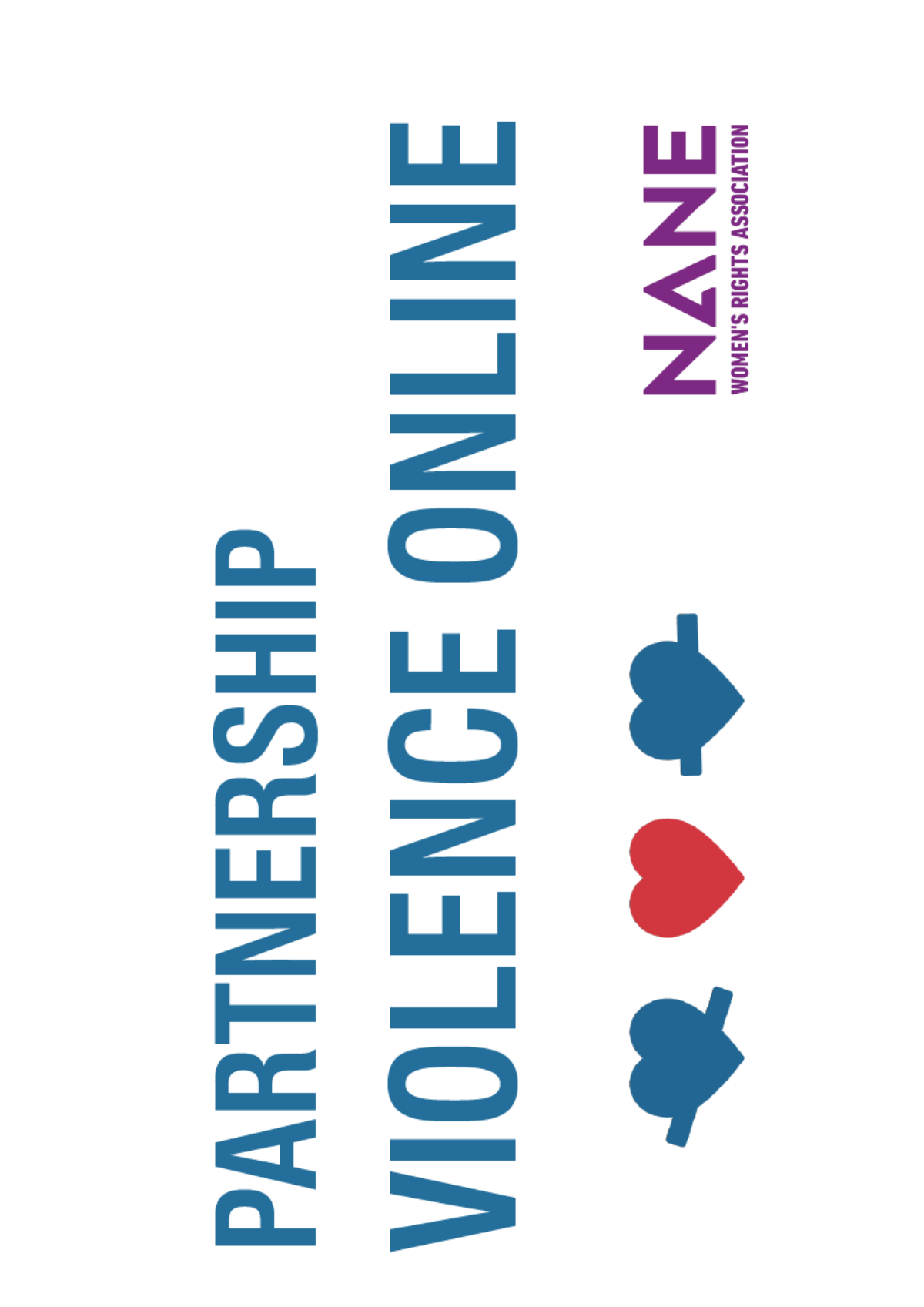
Flyer
PARTNERSHIP VIOLENCE ONLINE
Abuse is abuse, even if it happens online. The victim may experience the same fear, loss of control and other disadvantages in several areas of their life.
Online abuse is more and more widespread and is often a continuation of offline abuse as another method of control. The tools of online abuse are different, but its purpose is the same as it is offline: exercising power over the partner, isolating and silencing them.
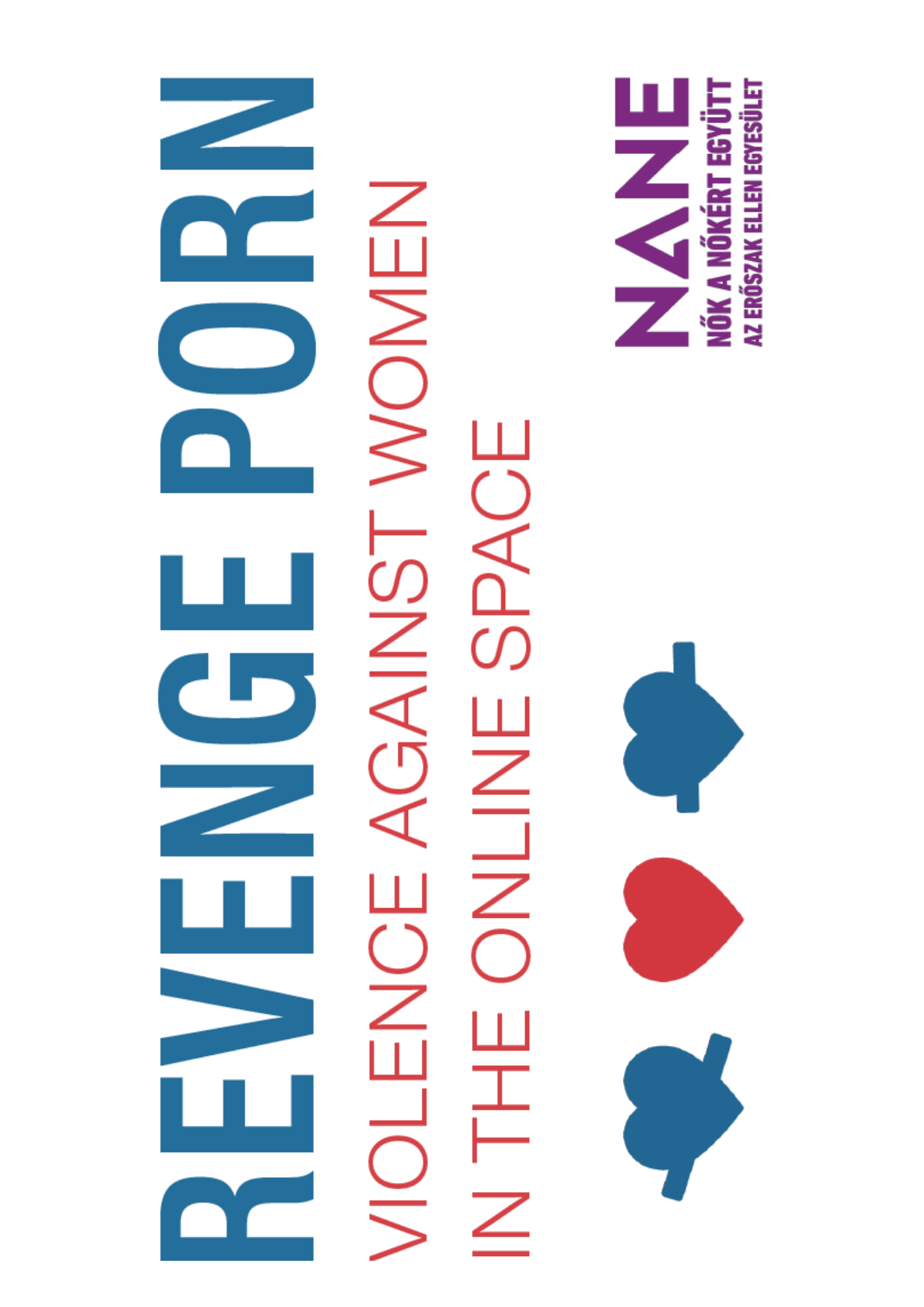
Flyer
REVENGE PORN
“The online distribution of sexually graphic photographs or videos without the consent of the individual in the images”
Revenge porn is a form of violence against women, one of the tools of sexual harassment and coercive control, and just like other types of sexual violence, it mainly affects girls and women, and its perpetrators are primarily men.
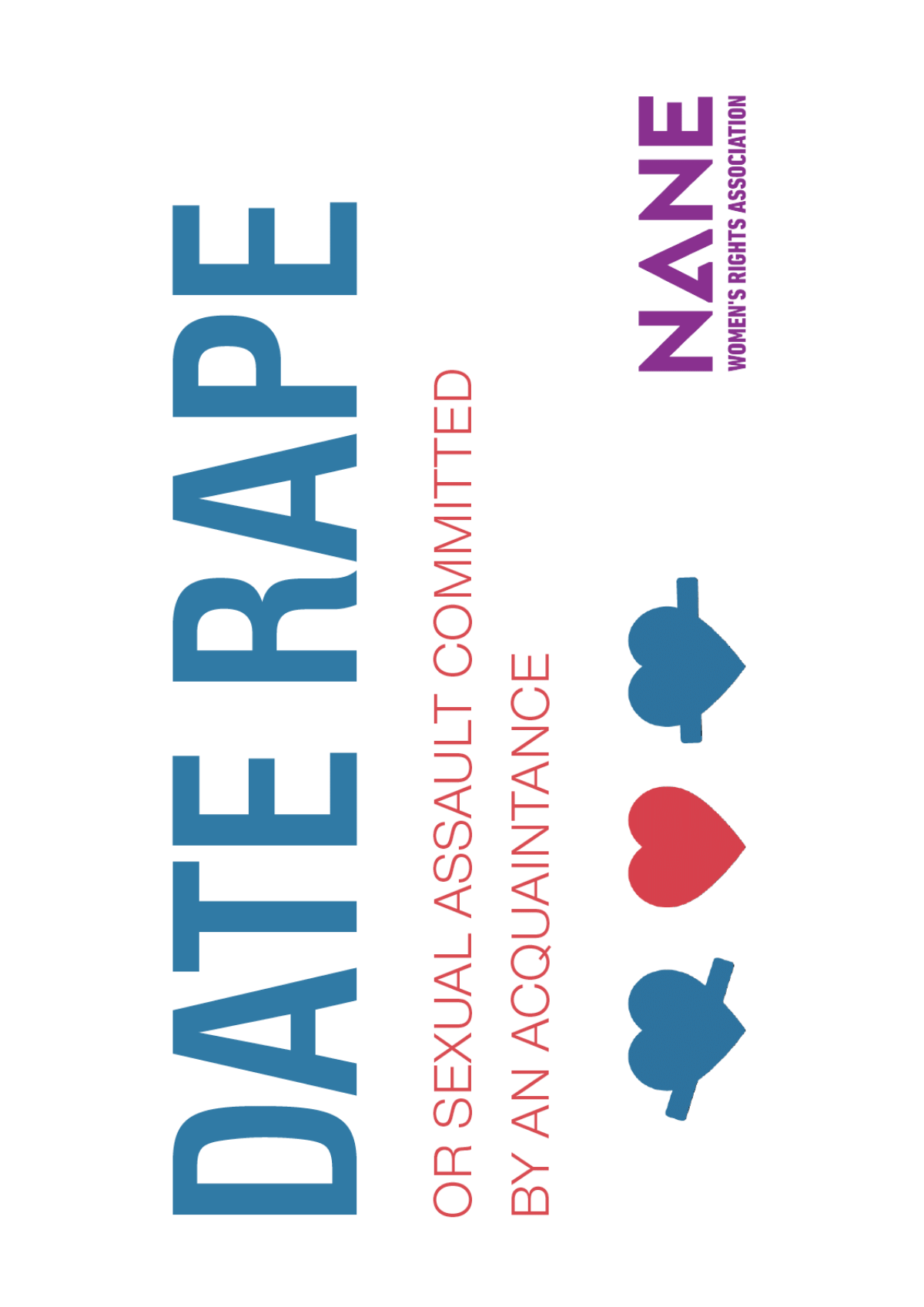
Flyer
DATE RAPE
Date rape means any kind of coerced, forced or manipulated sexual act that happens on a date or during the dating period and is committed by a (potential) romantic / sexual partner. This is included in the category of acquaintance rape, when the perpetrator is an acquaintance of the victim, for example, her friend, colleague, trainer, doctor, etc. The two terms are often used interchangeably.
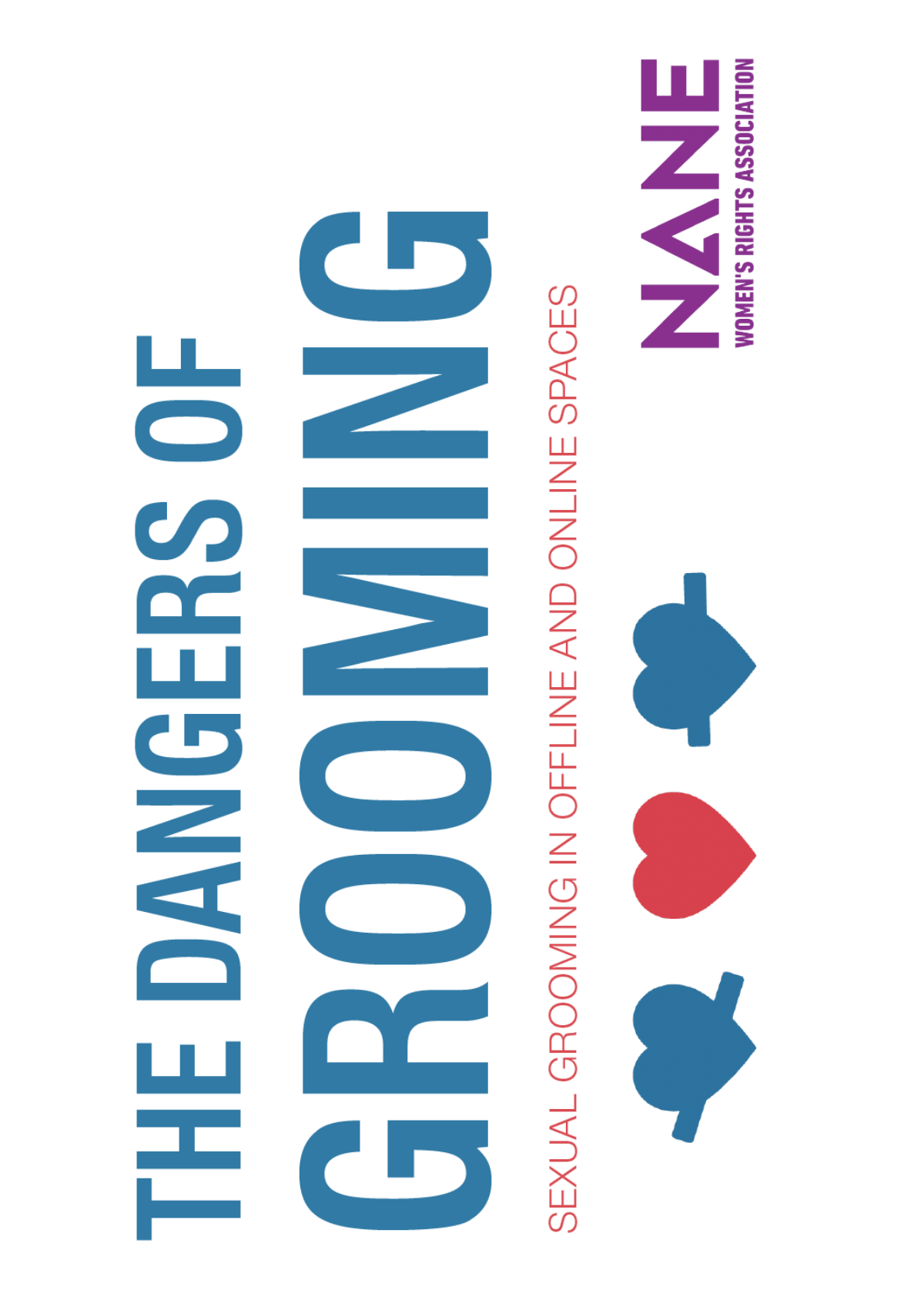
Flyer
THE DANGERS OF GROOMING
Grooming is when someone systematically builds a relationship, trust and emotional connection with a child or young person so they can sexually manipulate, exploit and abuse them. Grooming also happens online. Social media and smart devices make grooming extremely easy because perpetrators can pretend to be someone else (another child or peer), and this often happens without the knowledge of the parents.
